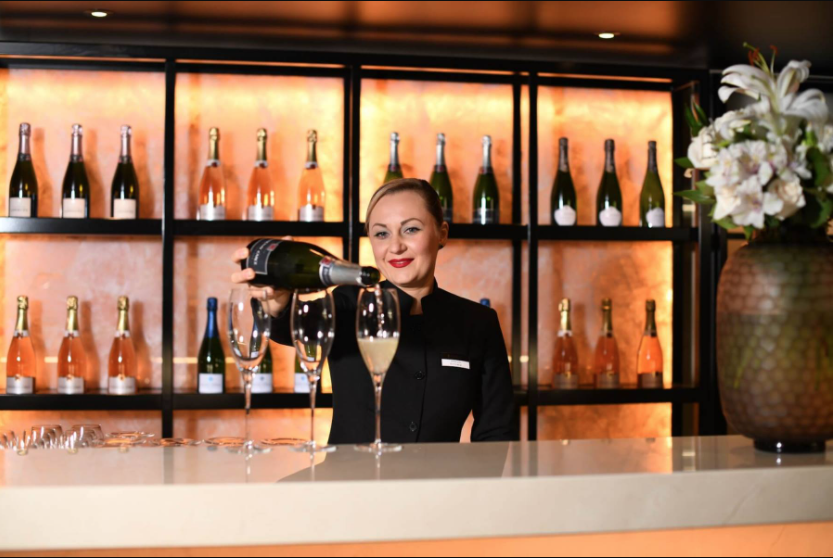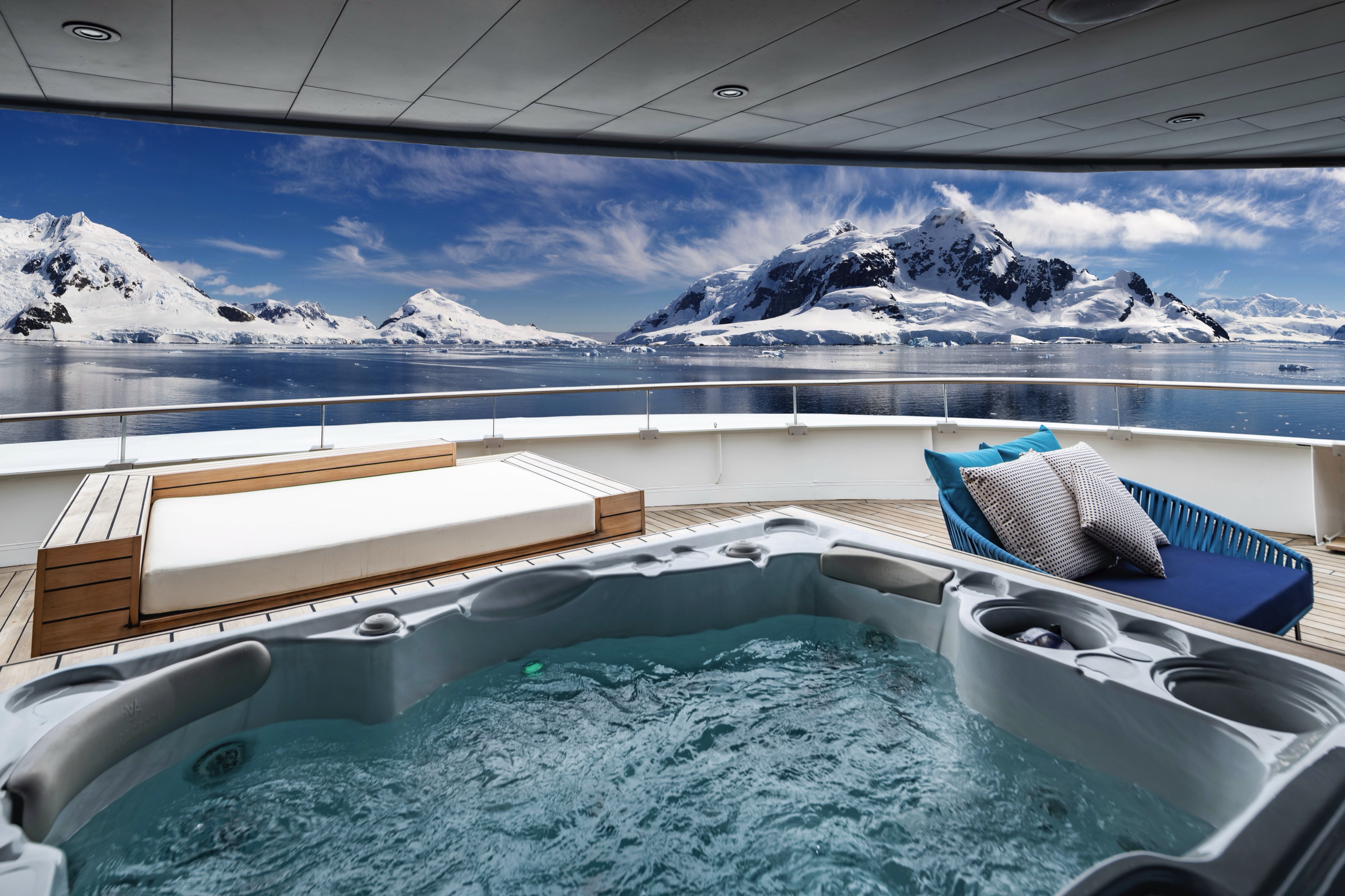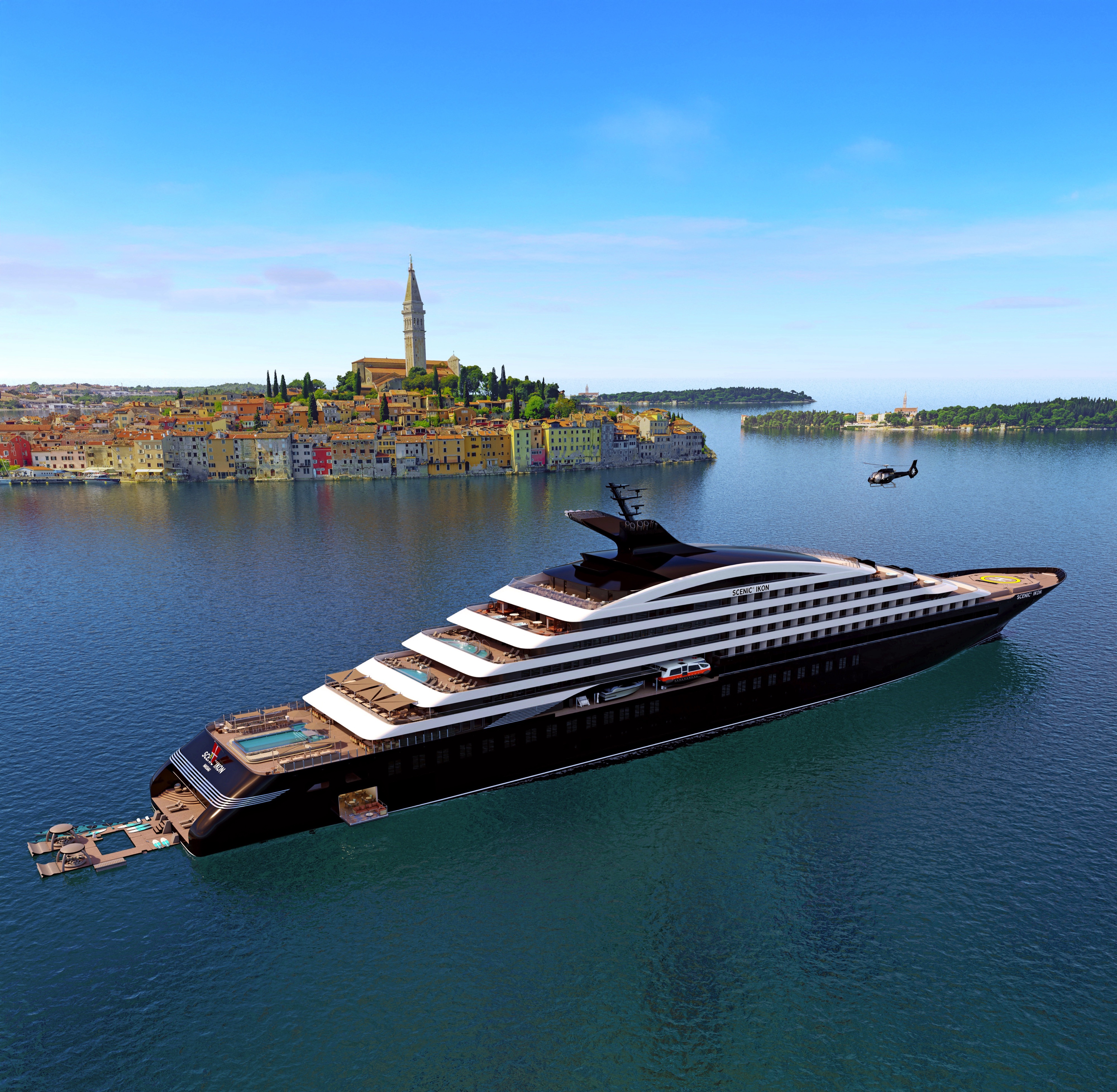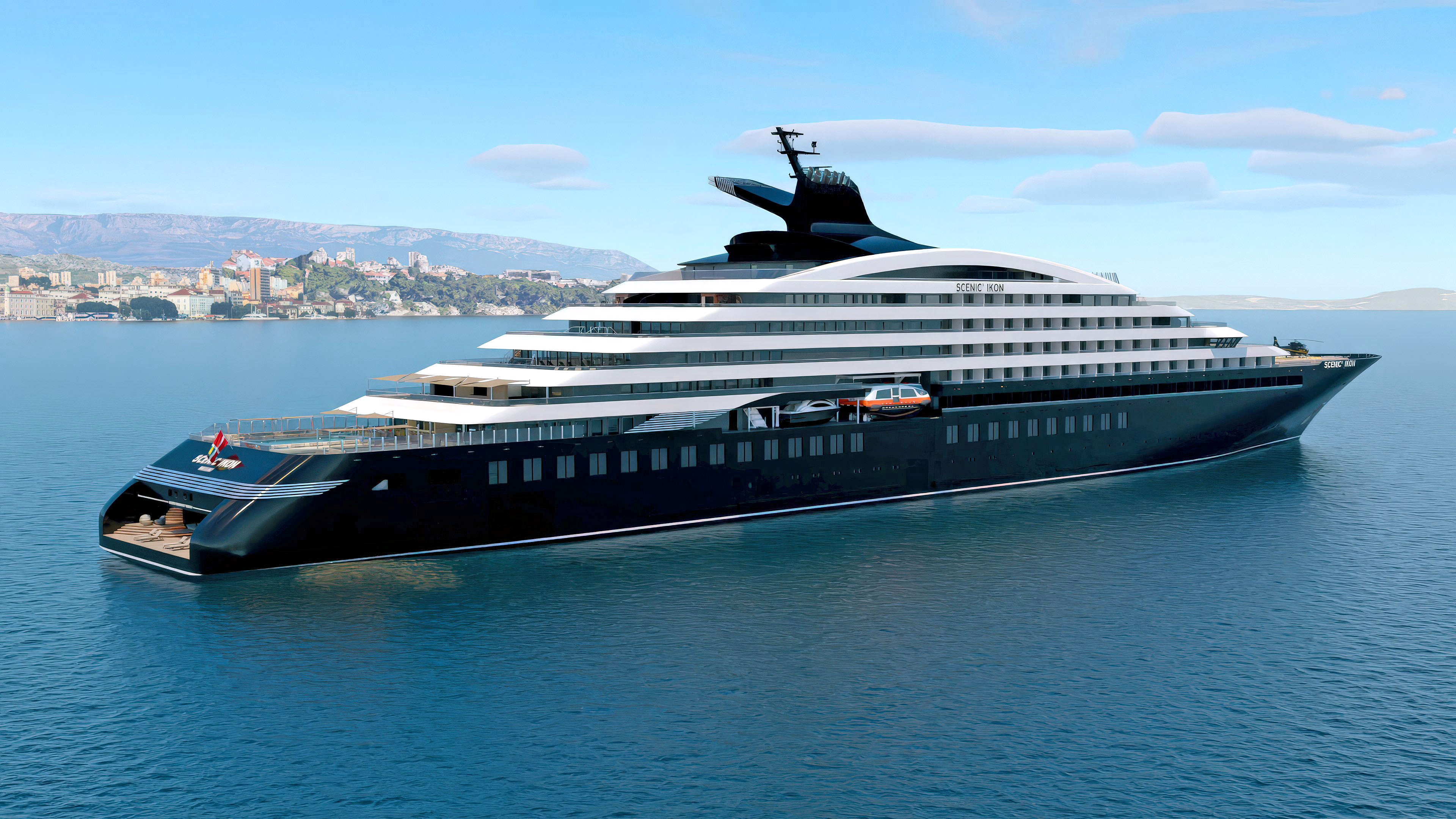Itinerary
Italy’s vibrant capital lives in the present, but no other city on earth evokes its past so powerfully. For over 2,500 years, emperors, popes, artists, and common citizens have left their mark here. Archaeological remains from ancient Rome, art-stuffed churches, and the treasures of Vatican City vie for your attention, but Rome is also a wonderful place to practice the Italian-perfected il dolce far niente, the sweet art of idleness. Your most memorable experiences may include sitting at a caffè in the Campo de’ Fiori or strolling in a beguiling piazza.
Day programme:
Welcome to Rome, the Eternal City, where ancient monuments and ornate churches sit alongside busy cafes and famous designer boutiques. Scenic Ikon, your first-in-its-class next-generation Discovery Yacht, will be waiting at the port of Civitavecchia, a key Roman gateway dating back to the second century. Upon arrival, you’ll be warmly welcomed as you embark on board by the Captain and crew with a glass of champagne. Meet your butler and settle into your spacious suite. Head out on deck to toast the beginning of your voyage as you sail away from this ancient harbour. Please book your flight to arrive into Rome prior to 02:00 PM.
Livorno is a gritty city with a long and interesting history. In the early Middle Ages it alternately belonged to Pisa and Genoa. In 1421 Florence, seeking access to the sea, bought it. Cosimo I (1519–74) started construction of the harbor in 1571, putting Livorno on the map. After Ferdinando I de’ Medici (1549–1609) proclaimed Livorno a free city, it became a haven for people suffering from religious persecution; Roman Catholics from England and Jews and Moors from Spain and Portugal, among others, settled here. The Quattro Mori (Four Moors), also known as the Monument to Ferdinando I, commemorates this. (The statue of Ferdinando I dates from 1595, the bronze Moors by Pietro Tacca from the 1620s.)In the following centuries, and particularly in the 18th, Livorno boomed as a port. In the 19th century the town drew a host of famous Britons passing through on their grand tours. Its prominence continued up to World War II, when it was heavily bombed. Much of the town’s architecture, therefore, postdates the war, and it’s somewhat difficult to imagine what it might have looked like before. Livorno has recovered from the war, however, as it’s become a huge point of departure for container ships, as well as the only spot in Tuscany for cruise ships to dock for the day.Most of Livorno’s artistic treasures date from the 17th century and aren’t all that interesting unless you dote on obscure baroque artists. Livorno’s most famous native artist, Amedeo Modigliani (1884–1920), was of much more recent vintage. Sadly, there’s no notable work by him in his hometown.There may not be much in the way of art, but it’s still worth strolling around the city. The Mercato Nuovo, which has been around since 1894, sells all sorts of fruits, vegetables, grains, meat, and fish. Outdoor markets nearby are also chock-full of local color. The presence of Camp Darby, an American military base just outside town, accounts for the availability of many American products.If you have time, Livorno is worth a stop for lunch or dinner at the very least.
Day programme:
The city of Livorno has been welcoming sailors and traders from around the globe for over 400 years. As one of Italy's most cosmopolitan cities, Livorno serves as the gateway to the magnificent Tuscany region, renowned for its picturesque landscapes, delectable cuisine and rich artistic heritage. Located conveniently close to Florence (birthplace of the Renaissance) and Pisa, Livorno offers easy access to these iconic destinations.
The colorful facades and pedestrians-only calata (promenade) make Portovenere the quintessential Ligurian seaside village. As a UNESCO World Heritage Site, its harbor is lined with tall, thin “terratetto” houses that date from as far back as the 11th century and are connected in a wall-like formation to protect against attacks by the Pisans and local pirates. Its tiny, carruggi (alley-like passageways) lead to an array of charming shops, homes, and gardens and eventually to the village’s impressive Castle Doria high on the olive tree covered hill. To the west standing guard over the Mediterranean is the picturesque medieval Chiesa di San Pietro, once the site of a temple to Venus (Venere in Italian), from which Portovenere gets its name. Nearby, in a rocky area leading to the sea, is Byron’s Cave, a favorite spot that the poet loved to swim out into the sea from.
Day programme:
Dubbed the “sixth” Cinque Terre town, Portovenere is a World Heritage-listed beauty that has an extraordinary, picturesque coastline. With narrow streets winding through a medieval town and sweeping views of the Mediterranean, it’s a hidden gem that is less frequented, allowing you the space to relax and experience the town for all that it is. Previously used as a Roman naval station, there is a lot of history for you to explore along this rugged coast. Popular poets and writers such as Byron, Shelley and Lawrence are known to have fallen in love with the charm of this town.
On one of the best stretches of the Mediterranean, this classic luxury destination is one of the most sought-after addresses in the world. With all the high-rise towers you have to look hard to find the Belle Époque grace of yesteryear. But if you head to the town’s great 1864 landmark Hôtel de Paris—still a veritable crossroads of the buffed and befurred Euro-gentry—or enjoy a grand bouffe at its famous Louis XV restaurant, or attend the opera, or visit the ballrooms of the casino, you may still be able to conjure up Monaco’s elegant past. Prince Albert II, a political science graduate from Amherst College, traces his ancestry to Otto Canella, who was born in 1070. The Grimaldi dynasty began with Otto’s great-great-great-grandson, Francesco Grimaldi, also known as Frank the Rogue. Expelled from Genoa, Frank and his cronies disguised themselves as monks and in 1297 seized the fortified medieval town known today as Le Rocher (the Rock). Except for a short break under Napoléon, the Grimaldis have been here ever since, which makes them the oldest reigning family in Europe. In the 1850s a Grimaldi named Charles III made a decision that turned the Rock into a giant blue chip. Needing revenue but not wanting to impose additional taxes on his subjects, he contracted with a company to open a gambling facility. The first spin of the roulette wheel was on December 14, 1856. There was no easy way to reach Monaco then—no carriage roads or railroads—so no one came. Between March 15 and March 20, 1857, one person entered the casino—and won two francs. In 1868, however, the railroad reached Monaco, and it was filled with Englishmen who came to escape the London fog. The effects were immediate. Profits were so great that Charles eventually abolished all direct taxes. Almost overnight, a threadbare principality became an elegant watering hole for European society. Dukes (and their mistresses) and duchesses (and their gigolos) danced and dined their way through a world of spinning roulette wheels and bubbling champagne—preening themselves for nights at the opera, where such artists as Vaslav Nijinsky, Sarah Bernhardt, and Enrico Caruso came to perform. Along with the tax system, its sensational position on a broad, steep peninsula that bulges into the Mediterranean—its harbor sparkling with luxury cruisers, its posh mansions angling awnings toward the nearly perpetual sun—continues to draw the rich and famous. One of the latest French celebrities to declare himself “Monégasque,” thus giving up his French passport, is superchef Alain Ducasse, who said that he made the choice out of affection for Monaco rather than tax reasons. Pleasure boats vie with luxury cruisers in their brash beauty and Titanic scale, and teams of handsome young men—themselves dyed blond and tanned to match—scour and polish every gleaming surface. As you might expect, all this glitz doesn’t come cheap. Eating is expensive, and even the most modest hotels cost more here than in nearby Nice or Menton. As for taxis, they don’t even have meters so you are completely at the driver’s mercy (with prices skyrocketing during events such as the Grand Prix). For the frugal, Monaco is the ultimate day-trip, although parking is as coveted as a room with a view. At the very least you can afford a coffee at Starbucks. The harbor district, known as La Condamine, connects the new quarter, officially known as Monte Carlo with Monaco-Ville (or Le Rocher), a medieval town on the Rock, topped by the palace, the cathedral, and the Oceanography Museum. Have no fear that you’ll need to climb countless steps to get to Monaco-Ville, as there are plenty of elevators and escalators climbing the steep cliffs. But shuttling between the lovely casino grounds of Monte Carlo and Old Monaco, separated by a vast port, is a daunting proposition for ordinary mortals without wings, so hop on the No. 1 bus from Saint Roman, or No. 2 from the Jardin Exotique – Both stop at Place du Casino and come up to Monaco Ville.
Day programme:
Monte Carlo is the epitome of style and elegance, nestled within the principality of Monaco. Explore the opulent streets lined with famous designer boutiques and bask in the Mediterranean sun along the picturesque coastline. With its world-class entertainment, exclusive clubs and prestigious events, Monte Carlo captivates visitors with its glamour and sophistication. Whether you're seeking excitement at the famous Casino de Monte-Carlo or prefer a quiet moonlit dinner, an unforgettable overnight stay awaits.
United with France only since 1860, Nice has its own history and atmosphere, which dates back 230,000 years. It was on Colline du Château (now château-less) and at the Plage des Ponchettes, in front of the Old Town, that the Greeks established a market-port in 350 BC and named it Nikaia, which would become Marseilles’ chief coastal rival. The Romans established themselves a little later on the hills of Cimiez (Cemenelum), already previously occupied by Ligurians and Celts, and quickly overshadowed the waterfront port. After falling to the Saracen invasions, Nice regained power as an independent state, becoming an important port in the early Middle Ages.So cocksure did it become that in 1388, Nice, along with the hill towns behind, effectively seceded from the county of Provence, under Louis d’Anjou, and allied itself with Savoie. Thus began its liaison with the House of Savoy, and through it with Piedmont and Sardinia, it was the Comté de Nice (Nice County). This relationship lasted some 500 years, tinting the culture, architecture, and dialect in rich Italian hues.By the 19th century Nice was flourishing commercially, locked in rivalry with the neighboring shipping port of Genoa. Another source of income: the dawning of tourism, as first the English, then the Russian nobility, discovered its extraordinary climate and superb waterfront position. A parade of fine stone mansions and hotels closed into a nearly solid wall of masonry, separated from the smooth-round rocks of the beach by what was originally named Camin deis Anglés (the English Way), which of course is now the famous Promenade des Anglais. This magnificent crescent, which is seeking UNESCO recognition, is one of the noblest in France. Many of Nice’s most delightful attractions—the Cours Saleya market, the Old Town streets, the Hotel Negresco, and the Palais Masséna—are on or close to this 10-km (6-mile) waterfront, making it the first stop for most visitors, while the redevelopment of Nice’s port, around the other side of the Colline du Château, makes it easier for amblers who want to take in the Genoese architecture or peruse the antiques at the Puces de Nice, now part of the Promenade des 100 Antiquaires, along Quai Papacino. Nice also has the distinction of the “Family Plus” label, with free strollers, play areas, and restaurants with child-friendly activities.
Day programme:
Welcome to Nice, a jewel of the French Riviera. With its elegant seaside promenade, Belle Époque architecture, and vibrant markets, this coastal gem blends Mediterranean charm with cosmopolitan elegance. Stroll along the famous Promenade des Anglais, explore the narrow streets of the Old Town (Vieux Nice) or relax at a café with a view of the turquoise sea.
At first glance, it really doesn’t look all that impressive. There’s a pretty port with cafés charging €5 for a coffee and a picturesque old town in sugared-almond hues, but there are many prettier in the hills nearby. There are sandy beaches, rare enough on the Riviera, and old-fashioned squares with plane trees and pétanque players, but these are a dime a dozen throughout Provence. So what made St-Tropez an internationally known locale? Two words: Brigitte Bardot. When this pulpeuse (voluptuous) teenager showed up in St-Tropez on the arm of Roger Vadim in 1956 to film And God Created Woman, the heads of the world snapped around. Neither the gentle descriptions of writer Guy de Maupassant (1850–93), nor the watercolor tones of Impressionist Paul Signac (1863–1935), nor the stream of painters who followed (including Matisse and Bonnard) could focus the world’s attention on this seaside hamlet as did this one sensual woman in a scarf, Ray-Bans, and capris. Vanity Fair ran a big article, “Saint Tropez Babylon,” detailing the over-the-top petrodollar parties, megayachts, and Beyoncé–d paparazzi. But don’t be turned off: the next year, Stewart, Tabori & Chang released an elegant coffee-table book, Houses of St-Tropez, packed with photos of supremely tasteful and pretty residences, many occupied by fashion designers, artists, and writers. Once a hangout for Colette, Anaïs Nin, and Françoise Sagan, the town still earns its old moniker, the “Montparnasse of the Mediterranean.” Yet you might be surprised to find that this byword for billionaires is so small and insulated. The lack of train service, casinos, and chain hotels keeps it that way. Yet fame, in a sense, came too fast for St-Trop. Unlike the chic resorts farther east, it didn’t have the decades-old reputation of the sort that would attract visitors all year around. For a good reason: its location on the south side of the gulf puts it at the mercy of the terrible mistral winter winds. So, in summer the crowds descend and the prices rise into the stratosphere. In July and August, you must be carefree about the sordid matter of cash. After all, at the most Dionysian nightclub in town, a glass of tap water goes for $37 and when the mojo really gets going, billionaires think nothing of “champagne-spraying” the partying crowds—think World Series celebrations but with $1,000 bottles of Roederer Cristal instead of Gatorade. Complaining about summer crowds, overpricing, and lack of customer service has become a tourist sport and yet this is what makes St-Tropez—described by the French daily newspaper Le Figaro as the place you can see “the greatest number of faces per square meter”—as intriguing as it is seductive.
Day programme:
Saint-Tropez, once a quiet fishing village, became a chic travel destination in the 1950s, thanks to Brigitte Bardot and the film ‘And God Created Woman’. Today, it still retains all the glitz and glamour, alongside glittering blue seas, stunning beaches and a Bohemian art scene. Stroll along the cobblestone streets of the old fishing quarter of La Ponche, and revel in the abstract architecture and sunlit landscapes that inspired great artists and filmmakers. With a late departure, see Saint-Tropez come alive in the evening.
Day programme:
The small town of Sanary-sur-Mer on the French Riviera also began life as a fishing village and the marina is still crammed with hundreds of brightly coloured wooden boats. You’ll quickly be charmed by this picturesque Provençal village, with its pretty palm-lined harbour, quiet pedestrian streets and pastel-hued buildings, all clustered around a 13th century watchtower, which you can climb for sweeping views of the town. Along the harbour, you’ll see fishermen pulling in the day’s catch which is then served up at the open-air restaurants looking out over the bobbing boats.
Day programme:
The picturesque fishing village of Cassis, nestled along the stunning French Riviera, is famous for its colourful harbour, charming streets and the dramatic cliffs of Calanques National Park. It’s a place of good bars, bistros and even better boutiques. Enjoy local wines, stroll along the waterfront and take in the unforgettable coastal views that define this captivating destination.
Day programme:
This morning, glide into another of the Mediterranean’s stunning deep-water harbours. Collioure is adorned with small beaches, castles by the sea and pink-domed bell towers. Known as the Pearl of the Vermillion Coast, Collioure has azure waters lapping pebbled beaches and pastel houses surrounding sun dappled squares. Walk through the town and lose yourself on the streets lined with cafes and gelato shops. With a mix of French and Spanish influences, Collioure is famed for its wine and salted anchovies, both of which are exported all over France.
Day programme:
Discover L’Escala, a charming coastal town on Spain’s Costa Brava known for its beaches and rich history. Famous for its connection to the ancient Greek settlement of Empúries, this town offers a unique blend of sun-soaked shores and fascinating archaeological sites. Stroll along the waterfront, savour fresh seafood and enjoy the relaxed Mediterranean vibe that makes L’Escala a hidden gem.
The infinite variety of street life, the nooks and crannies of the medieval Barri Gòtic, the ceramic tile and stained glass of Art Nouveau facades, the art and music, the throb of street life, the food (ah, the food!)—one way or another, Barcelona will find a way to get your full attention. The capital of Catalonia is a banquet for the senses, with its beguiling mix of ancient and modern architecture, tempting cafés and markets, and sun-drenched Mediterranean beaches. A stroll along La Rambla and through waterfront Barceloneta, as well as a tour of Gaudí’s majestic Sagrada Famíliaand his other unique creations, are part of a visit to Spain’s second-largest city. Modern art museums and chic shops call for attention, too. Barcelona’s vibe stays lively well into the night, when you can linger over regional wine and cuisine at buzzing tapas bars.
Day programme:
Your Signature Yacht Cruise finishes this morning in the vibrant city of Barcelona, capital of the region of Catalonia. This spectacular city is known for its culinary delights, eclectic architecture, thriving art scene and lively nightlife.Disembark after a final breakfast as you farewell your fellow guests and crew, taking with you memories of a truly unforgettable journey. Please book your flight to depart out of Barcelona after 12:00 PM.#Spa treatments and services at additional cost. Daily activities may be subject to change; please consult your Daily Wonder for updates. +All drinks on board, including those stocked in your mini bar, are included, except for a very small number of rare, fine and vintage wines, Champagnes and spirits. Specialty restaurants require a reservation, enquire on board.^Experiences on board our helicopters and submersible are at additional cost, subject to regulatory approval, availability, weight restrictions, medical approval and weather conditions.Helicopter not operational in France. Submersible not operational in Europe.The itinerary is a guide only and may be amended for operational reasons. As such Scenic cannot guarantee the voyage will operate unaltered from the itinerary stated above. Please refer to our terms and conditions for further information.
Ship features

Ikon Penthouse
Your own private residence at sea.
The lounge is thoughtfully appointed areas for relaxation, dining, and entertaining, with a fully appointed bar island: delight in anything your heart desires — from crafted cocktails to wellness-inspired refreshments and light dining — all served discreetly by your private butler. The suite features a master bedroom plus a wellness studio with in-suite ESPA spa services and private fitness amenities. Which can transform into a second bedroom for family or guests. The bathroom is enhanced with steam and infrared experiences for ultimate wellbeing and indulgence with full-size baths and double vanities, ensuring the utmost in comfort and indulgence. A spacious walk-in wardrobe and private Glam Bar, fully appointed with Dyson’s advanced hair care tools and elevated ESPA amenities, complete the suite, offering effortless luxury and the ultimate in oceanfront living. An expansive terrace with Jacuzzi, private cabana, and outdoor lounge and dining areas provides the perfect space to relax or entertain under open skies.

Grand Terrace Suite
Enjoy enhanced space and bespoke amenities. Each suite features spacious walk-in wardrobes and Glam Bars. These top-tier suites further elevate indulgence with expansive, fully appointed Butler Bars, offering a personalised selection of refreshments and in-suite dining options. Full-size bath, double vanity, Glam bar, and elevated ESPA amenities, delivering unparalleled comfort and refined ultra-luxury. A private terrace with jacuzzi, cabana and dining.
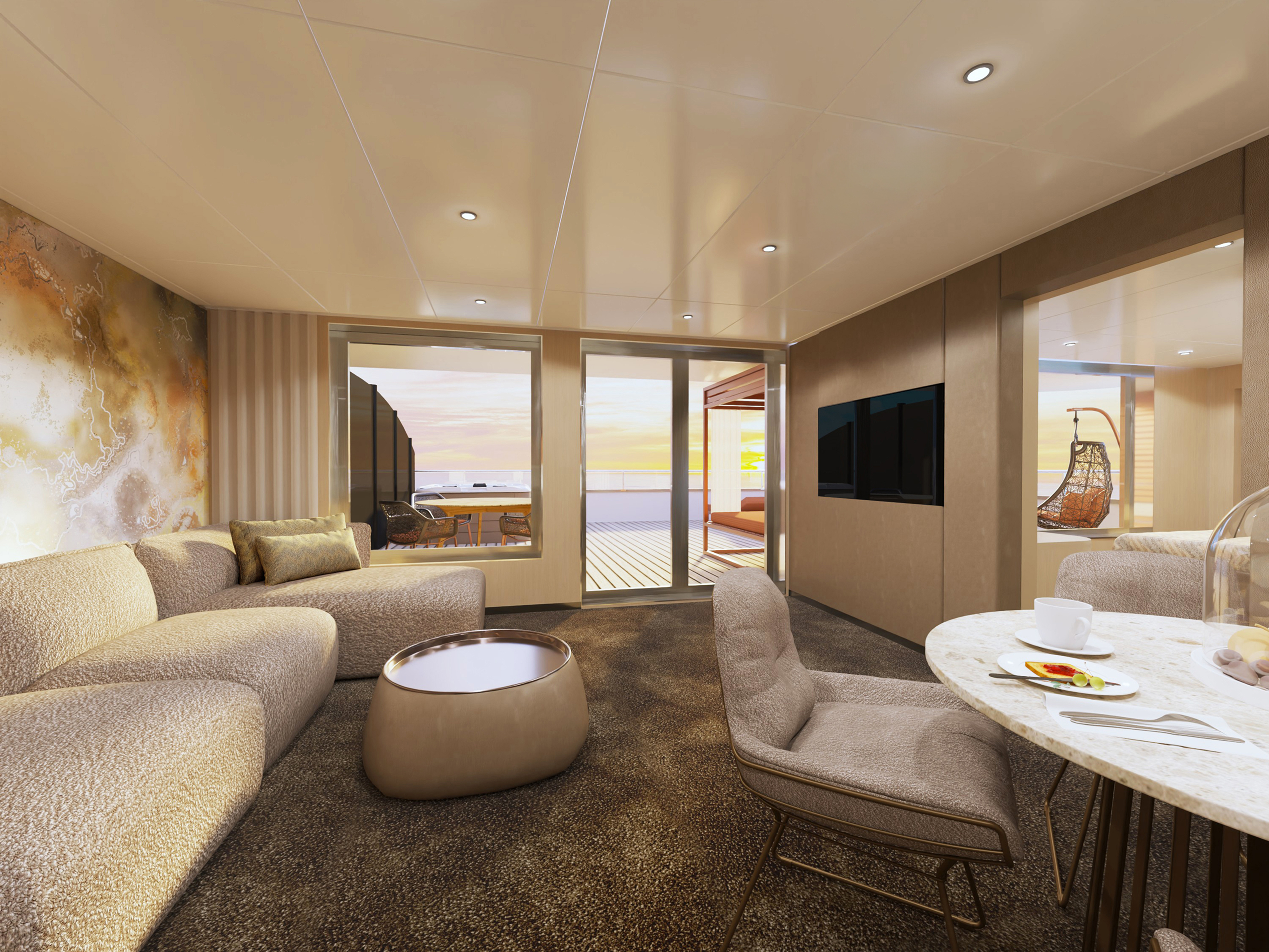
Scenic Yacht Suite
Enjoy enhanced space and bespoke amenities. Each suite features spacious walk-in wardrobes and Glam Bars. These top-tier suites further elevate indulgence with expansive, fully appointed Butler Bars, offering a personalised selection of refreshments and in-suite dining options. Full-size bath, double vanity, Glam bar, and elevated ESPA amenities, delivering unparalleled comfort and refined ultra-luxury. A private terrace with jacuzzi, cabana and dining.

Horizon Suite
Separate bedroom for enhanced privacy. Full-size bath, double vanity, walk-in wardrobe, and Glam Bar, ensuring every detail is designed for comfort, privacy, and indulgence.

Signature Spa Suite
A romantic retreat for couples, featuring a luxurious four-poster bed and indulgent wellness bathroom with a soaking spa bath, steam shower, soothing light therapy, and ocean vista, double vanity, and elevated ESPA spa amenities. Every detail is designed for shared relaxation and rejuvenation.
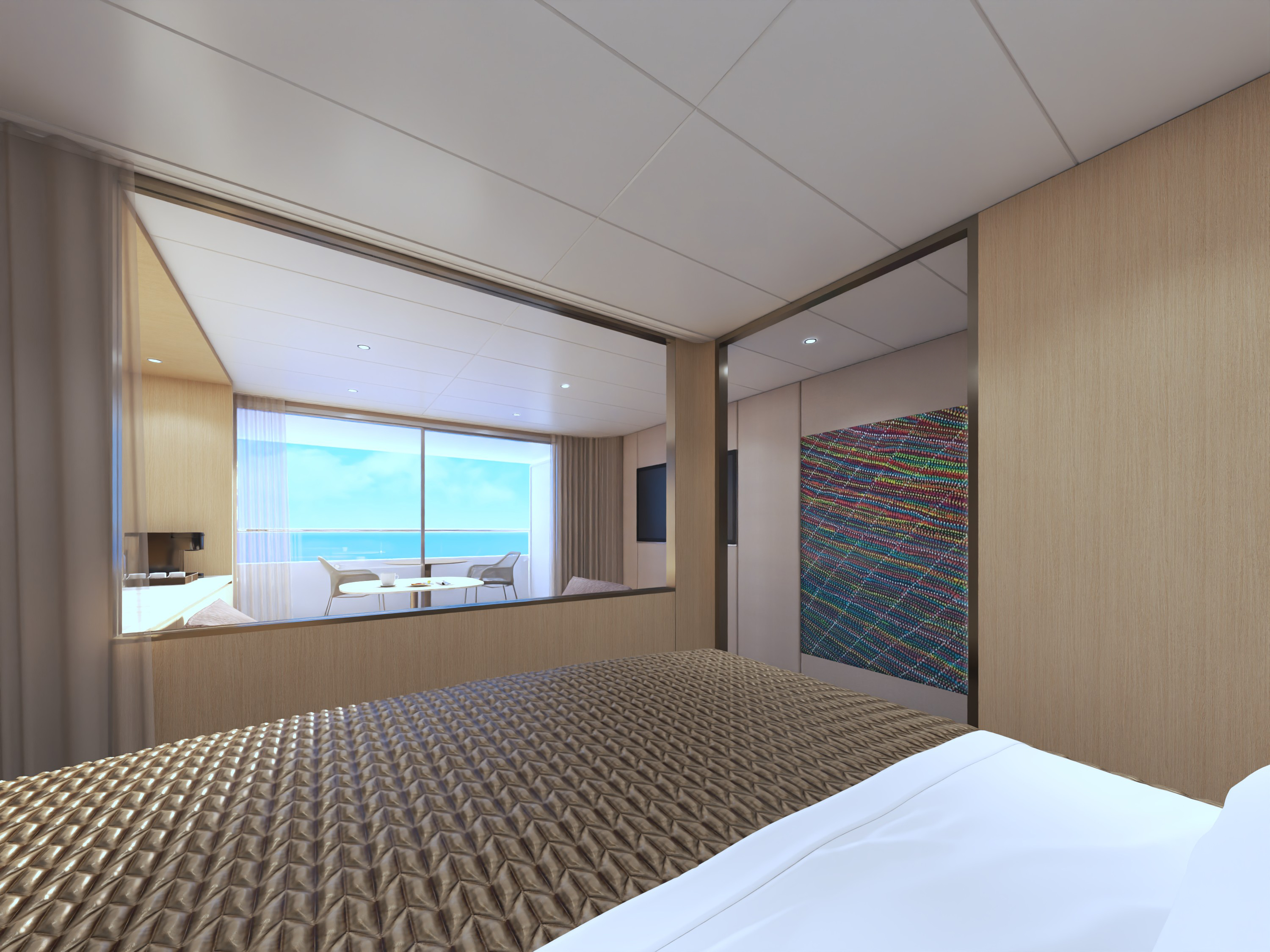
Master One Bedroom Suite
Separate bedrooms for enhanced privacy. Master Suite also offering adjoining suites for family accommodation. Full-size bath, double vanity, walk-in wardrobe, and Glam Bars, ensuring every detail is designed for comfort, privacy, and indulgence.
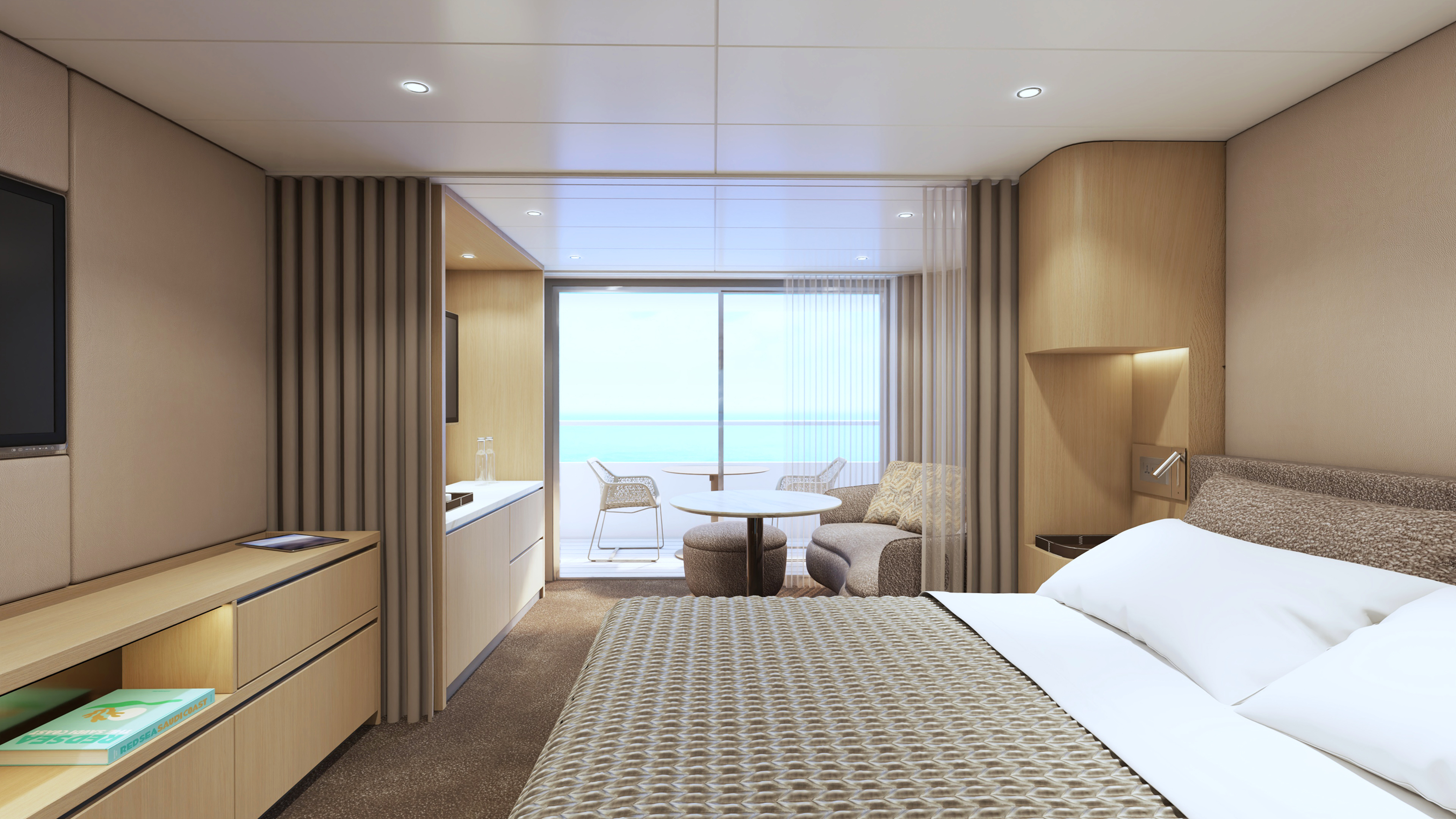
Grand Deluxe Verandah Suite
Separate sleep and lounge areas for the ultimate comfort. Enhanced spaces and elevated amenities. Walk-in wardrobes, Glam Bar, and fully appointed all-inclusive Butler Bars with custom tables for private in-suite dining.

Deluxe Verandah Suite
Separate sleep and lounge areas for the ultimate comfort. Enhanced spaces and elevated amenities. Walk-in wardrobes, Glam Bar, and fully appointed all-inclusive Butler Bars with custom tables for private in-suite dining.
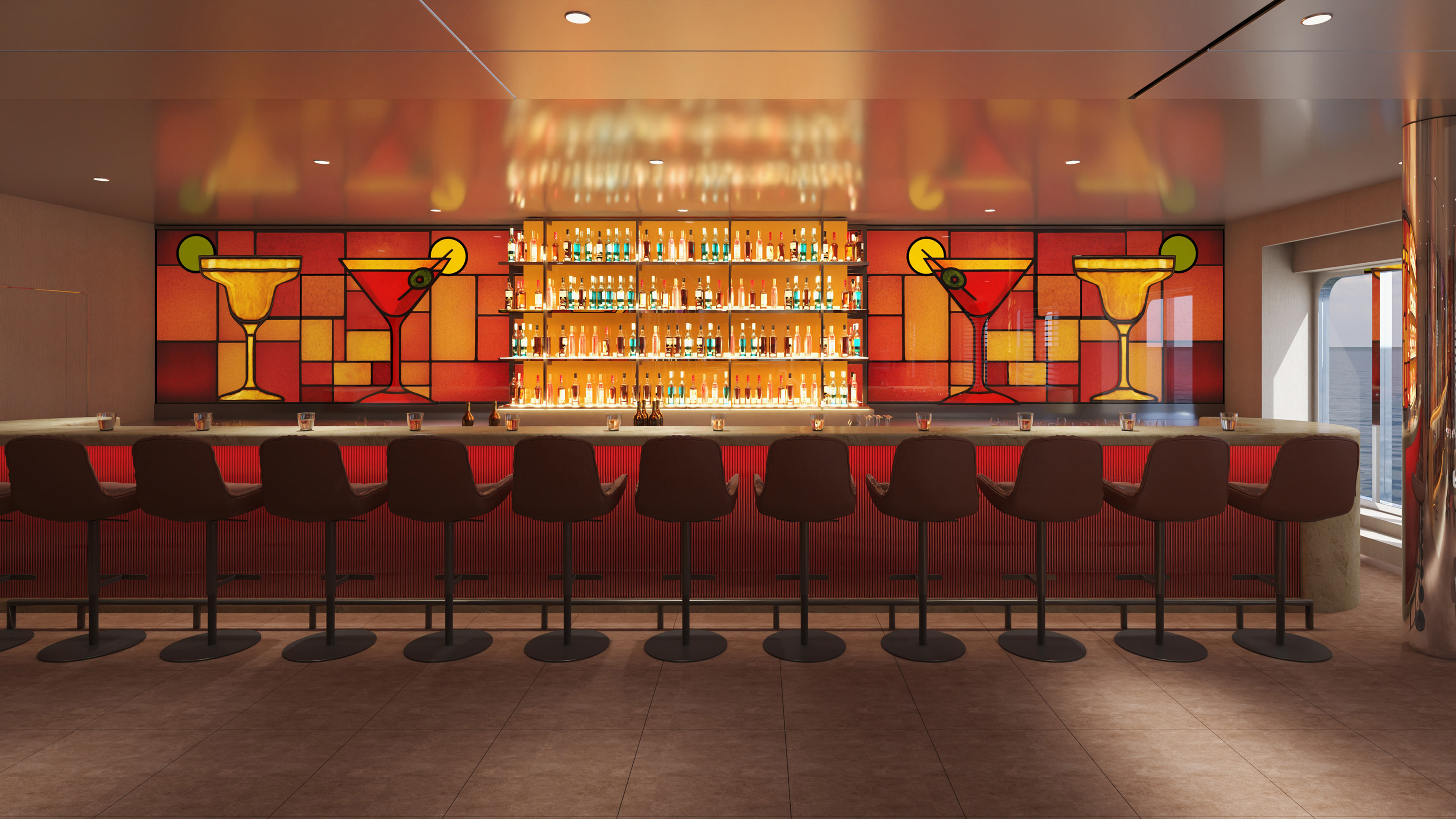
Textura
Expertly prepared Italian classics, premium steaks, and fresh seafood in an elegant yet relaxed atmosphere, with sweeping ocean views, exquisite flavours meet breathtaking scenery.
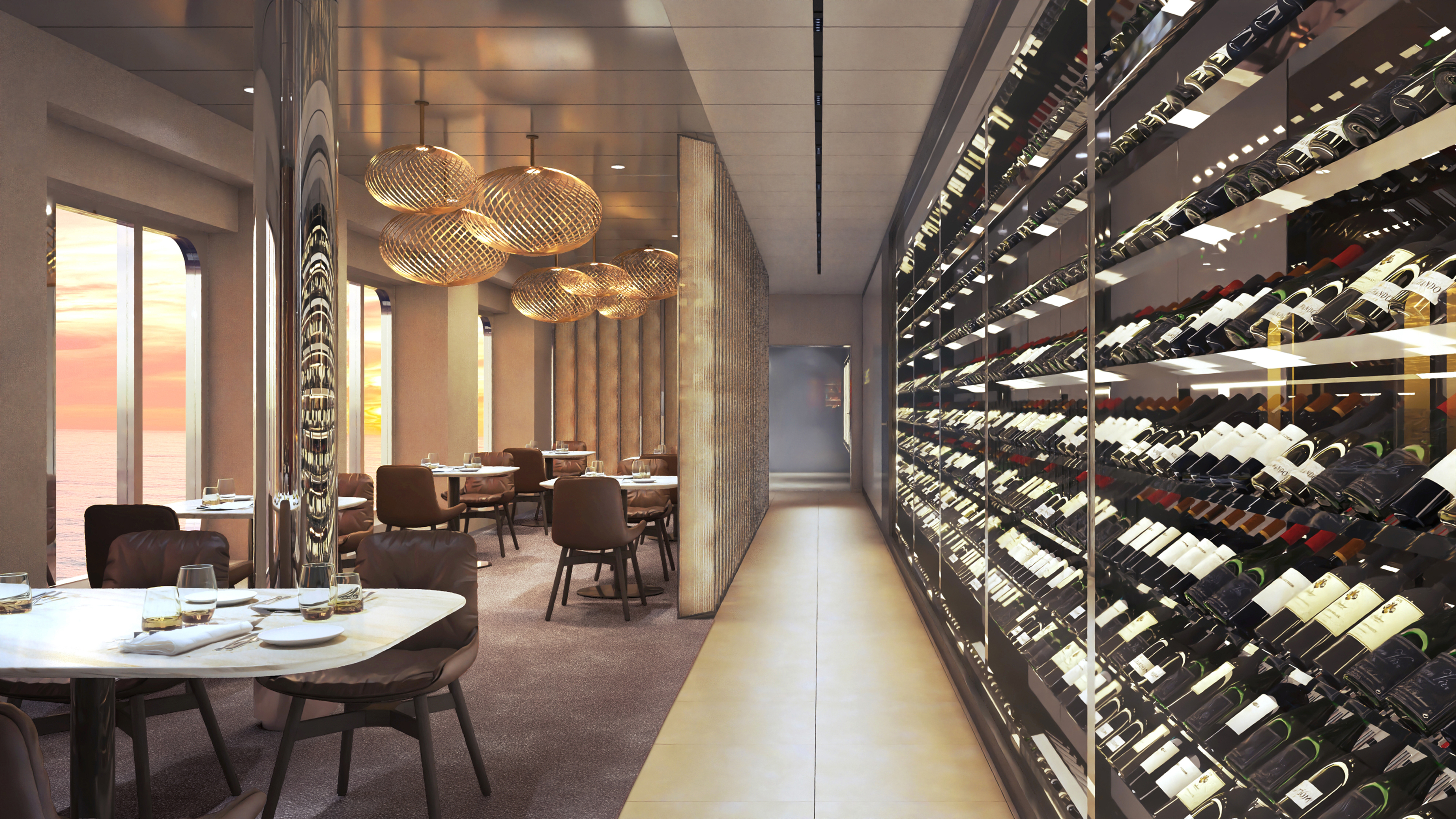
Elements
Expertly prepared Italian classics, premium steaks, and fresh seafood in an elegant yet relaxed atmosphere, with sweeping ocean views, exquisite flavours meet breathtaking scenery.
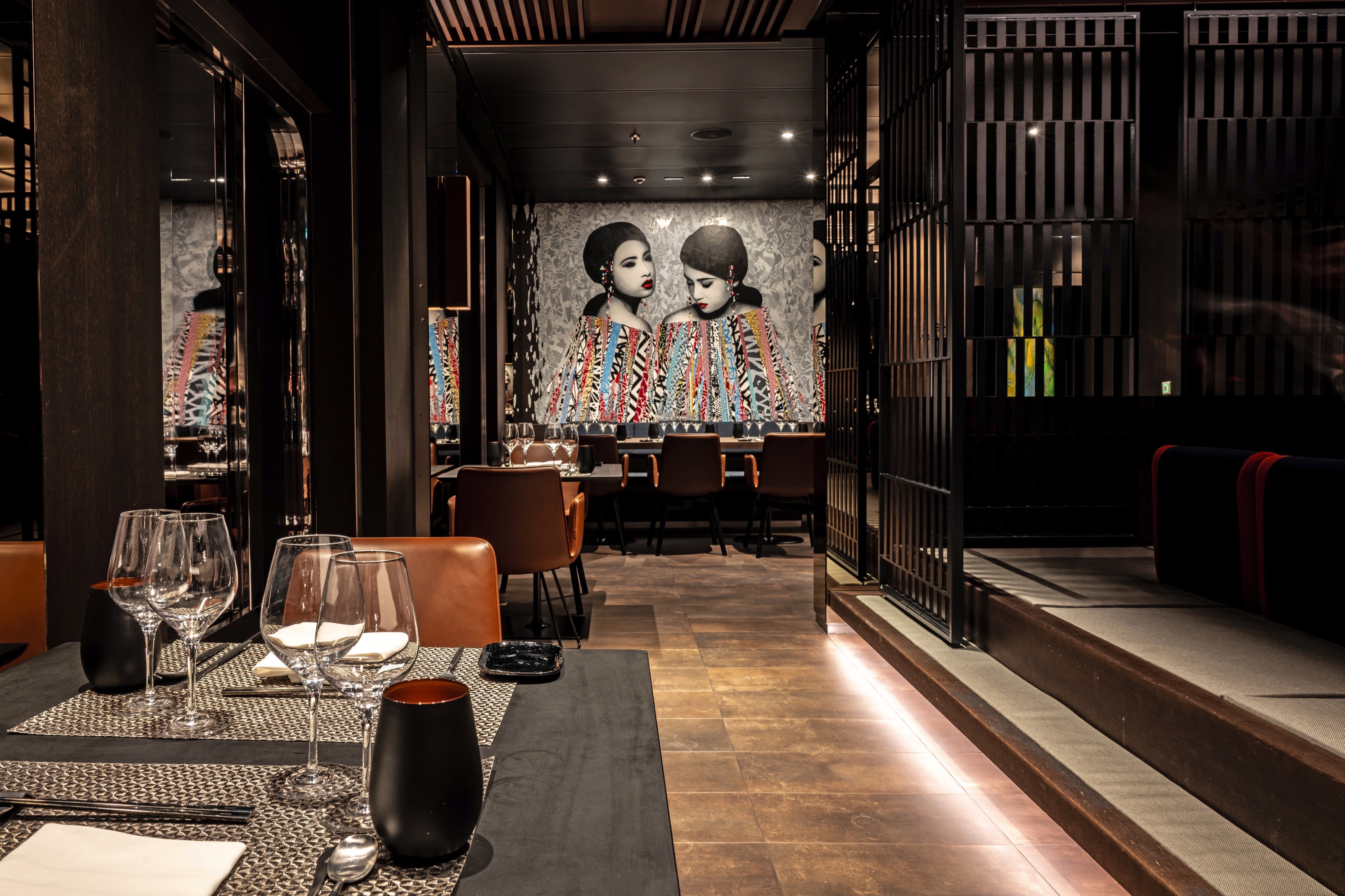
Koko’s Asian Fusion, Sushi & Night Market
For a contemporary twist, these experiences reimagine Asian traditions with dynamic flavours, lively presentation, and an energetic, immersive atmosphere.
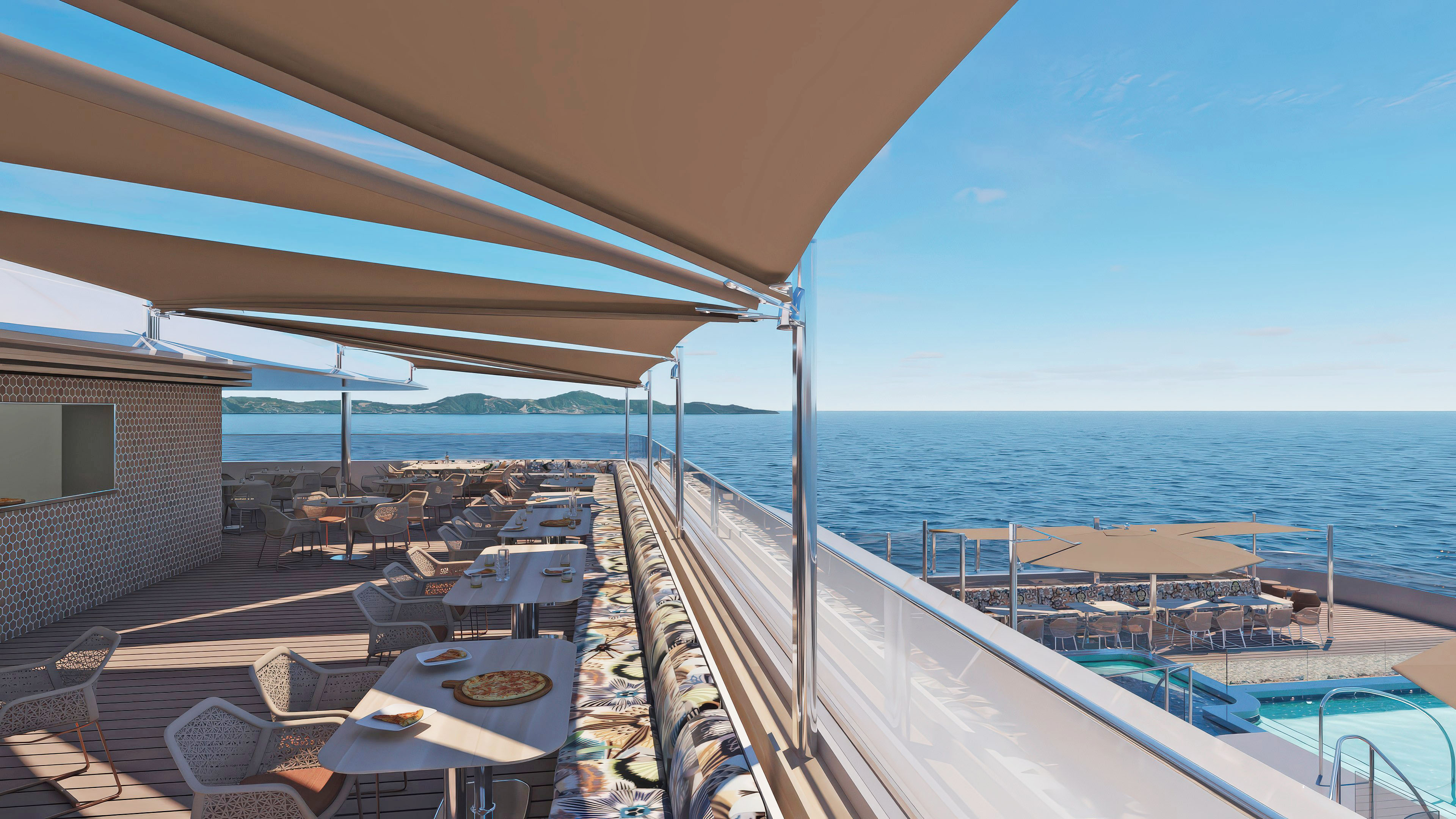
Crustory
Transforms pizza into a bold culinary exploration.

In-Suite Dining
24-hour room service for all suites.

Chef’s Table
A unique culinary concept at sea, this invitation-only dégustation experience showcases the innovative cooking techniques of the Executive Chef.

Lumière
Modern French cuisine is elevated to extraordinary heights in an intimate, refined setting, enhanced by an exclusive Champagne experience. French Fine Dining

The Yacht Club
Casual dining with a new al fresco terrace – from hot entrées to crisp salads, roast meats, seasonal seafood dishes and artisanal pastries. On special evenings, it transforms into a spectacular venue for gala celebrations, pairing exceptional cuisine with sweeping ocean views.

Azure Café & Bar
Embrace all-day dining with savoury light meals, delectable miniature desserts, hot drinks and premium beverages.

Summa
Elevates local ingredients in share-style plates.
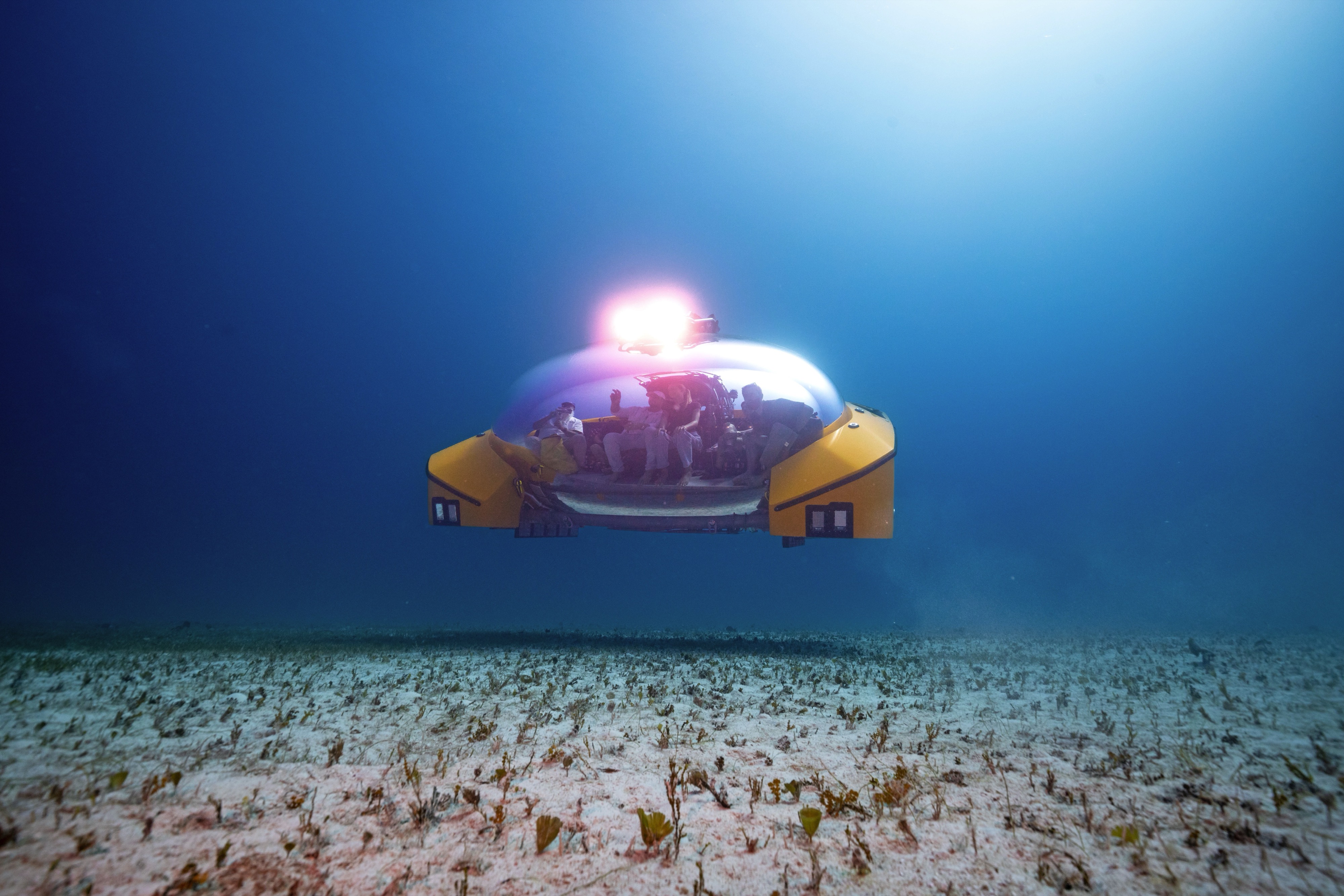
Scenic Neptune
Scenic Neptune III Triton AVA certified up to 200m, dives up to 100m for the best viewing experience. Up to eight guests plus pilot. 360 degree panoramic views, acrylic sphere. Will operate in Antarctica on Scenic Ikon.
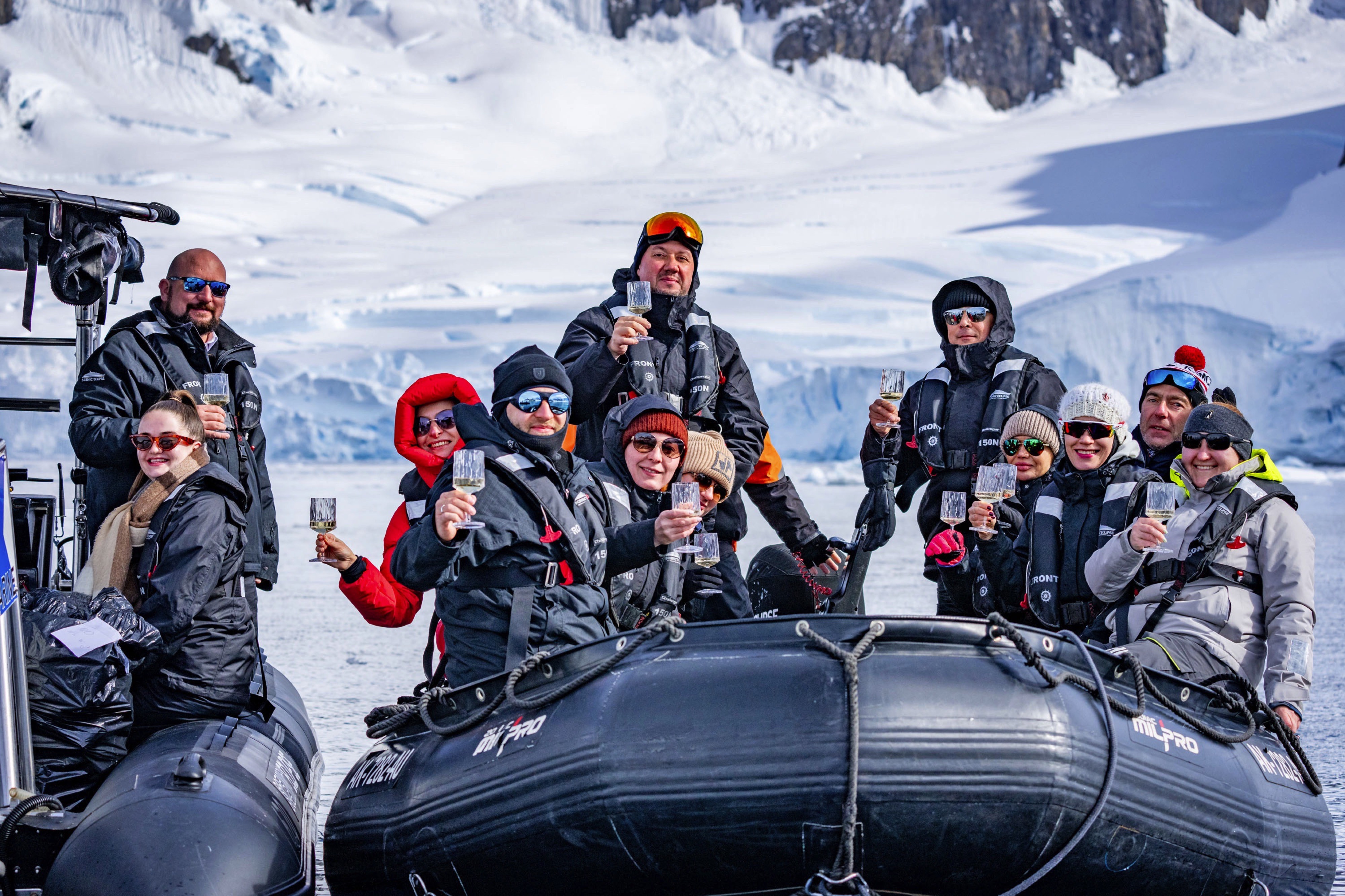
Discovery Team
Led by Director of Discovery Operations, Jason Flesher, the Discovery Team ensures unparalleled exploration and rich cultural immersion on Expedition and Discovery Voyages.
Our team of up to 20 specialists on Expedition Voyages, and up to 15 on Discovery Voyages, spans fields like history, biology, archaeology, naturalism, geology and photography. Enhancing your experience with their passion and expertise.
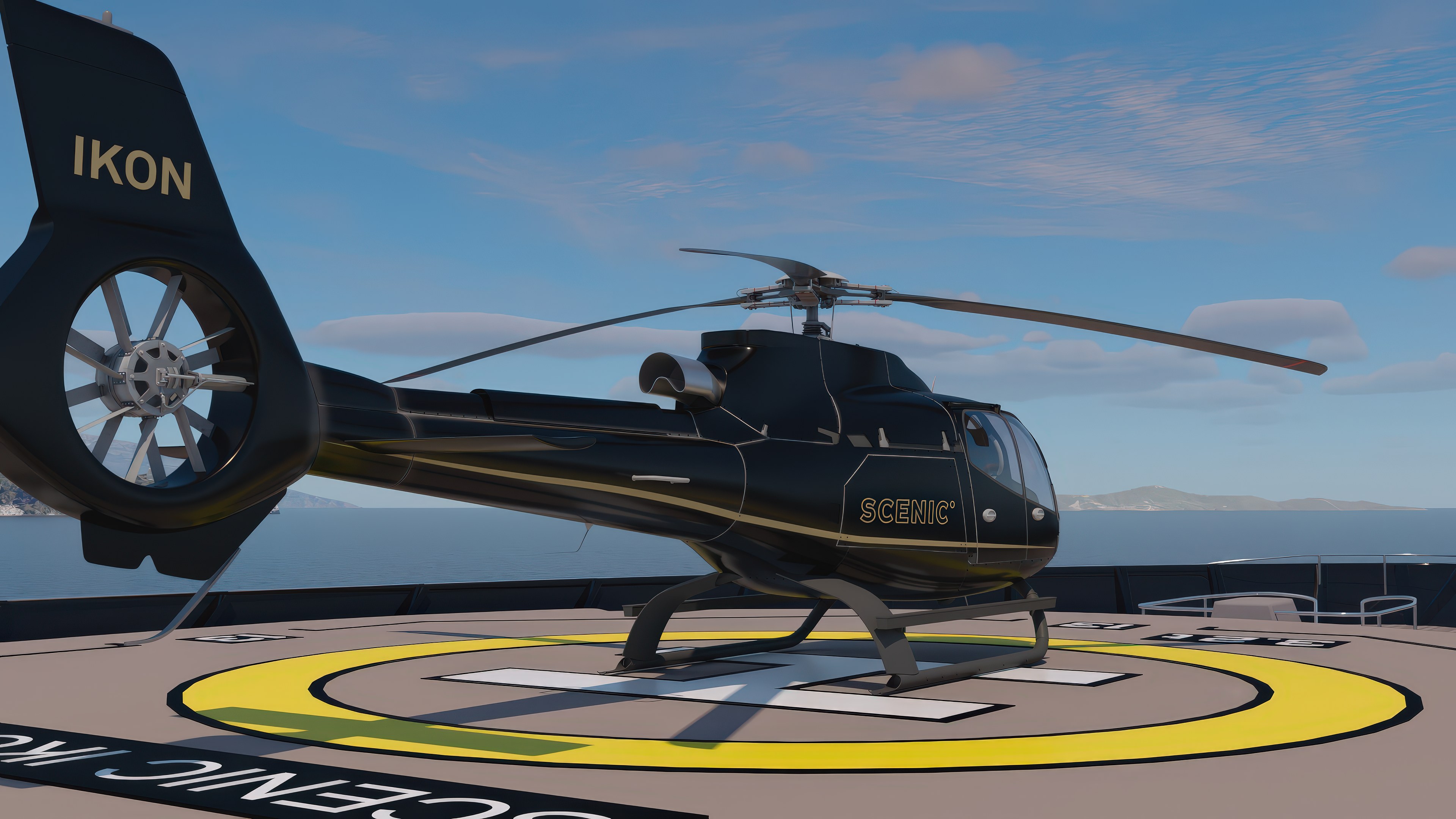
Helicopter Experiences
Two Airbus H130-T2 helicopters for up to 6 guests plus pilot. The quietest in the sky. Outstanding visibility from all seats, expansive windows and large, wrap-around windscreen. Noise cancelling Bose headphones.
Guests can elevate their voyage of discovery to the next level through thoughtfully curated helicopter experiences. With exclusive landings at prestigious golf courses, celebrated local restaurants and special access to historic cultural sites.
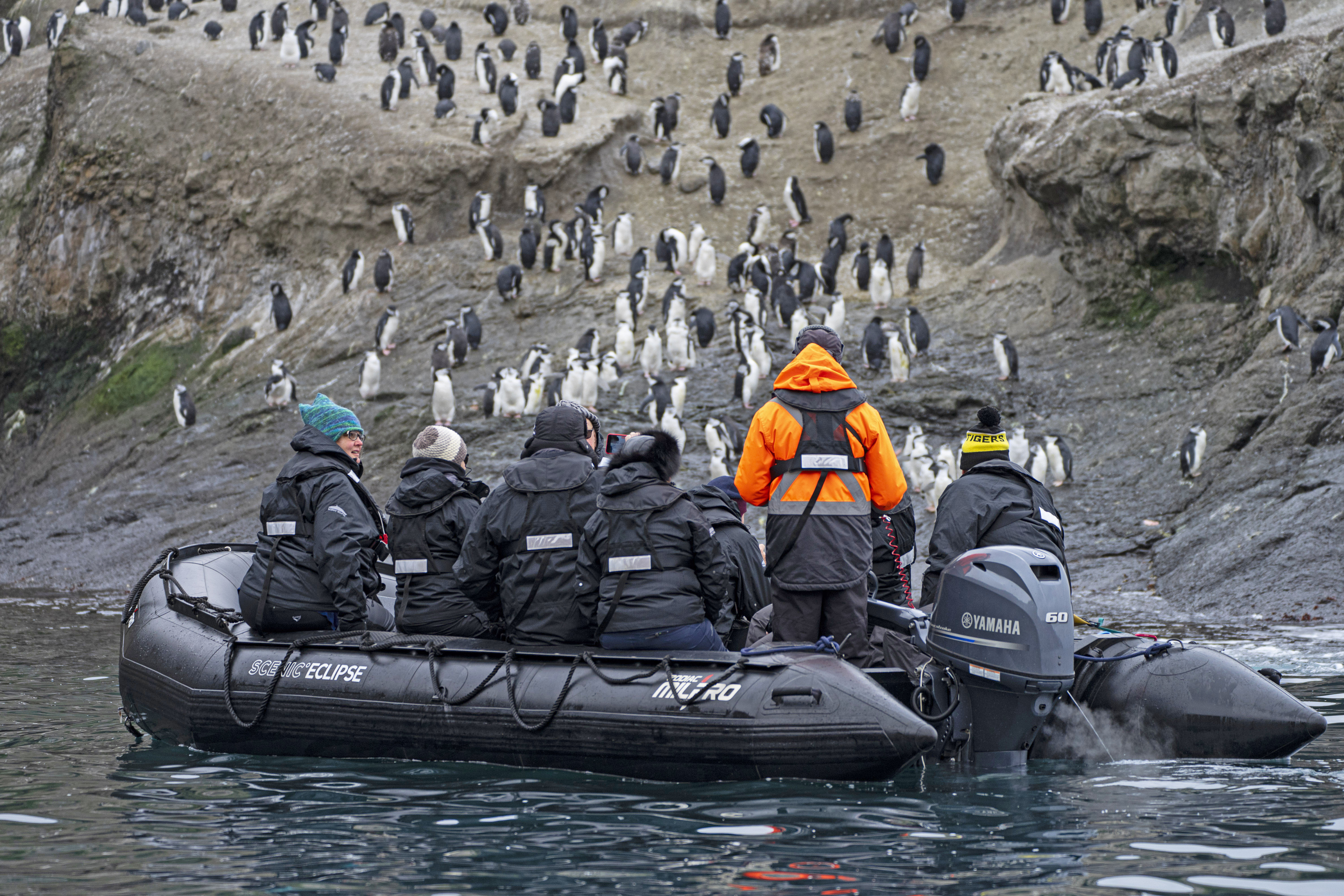
Zodiacs
The Discovery Team are expert operators of our fleet of Zodiacs. On both Expedition and Discovery Voyages the team will guide guests on Zodiac excursions to view stunning coastlines and wildlife, as well as onshore landings.
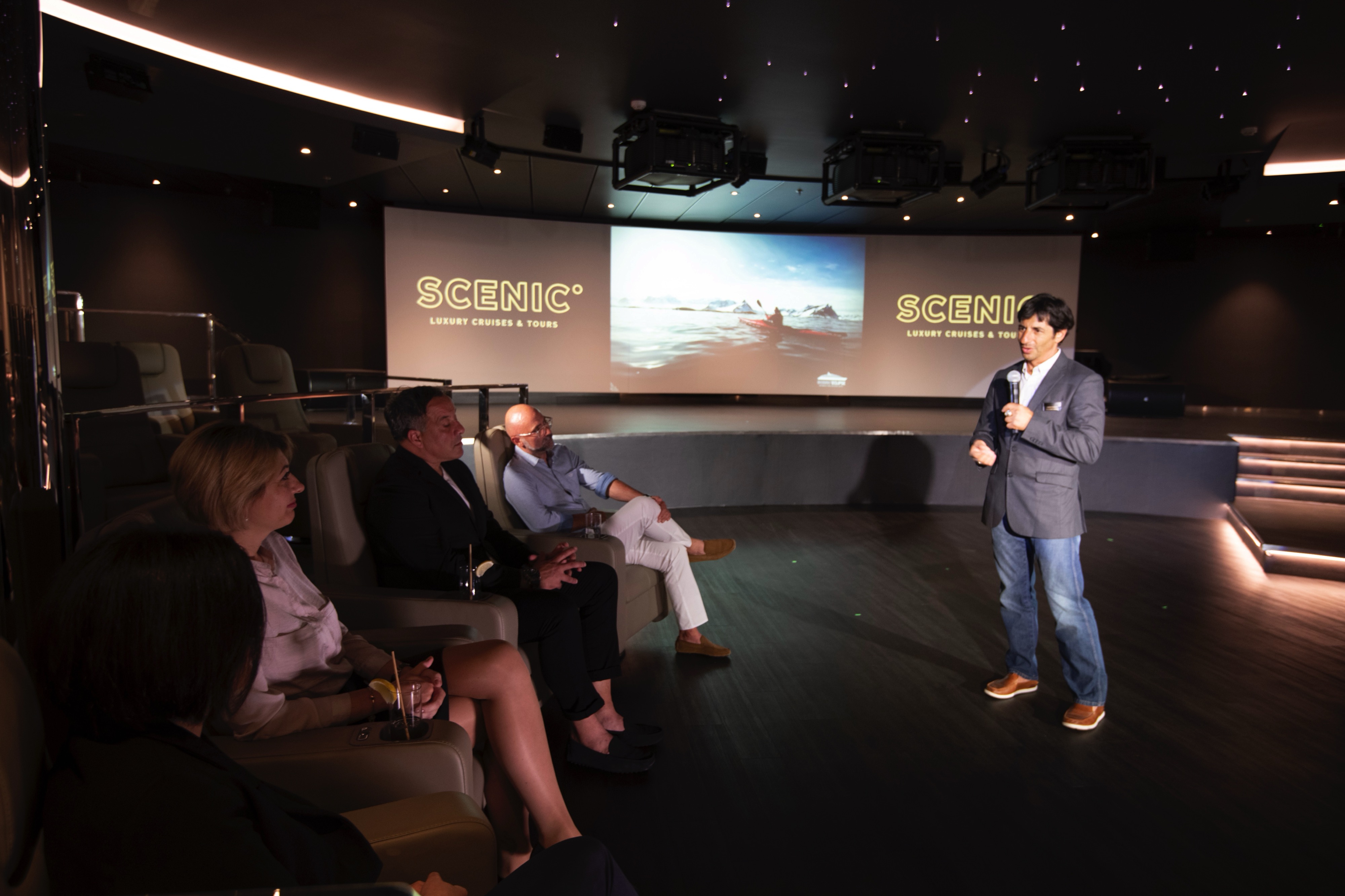
Education Programs
Learn about the unique wildlife, landscapes, history and culture of your destination from our knowledgeable experts during enriching lectures and education programs, hosted in the Discovery Yacht’s impressive state-of-the-art theatre.
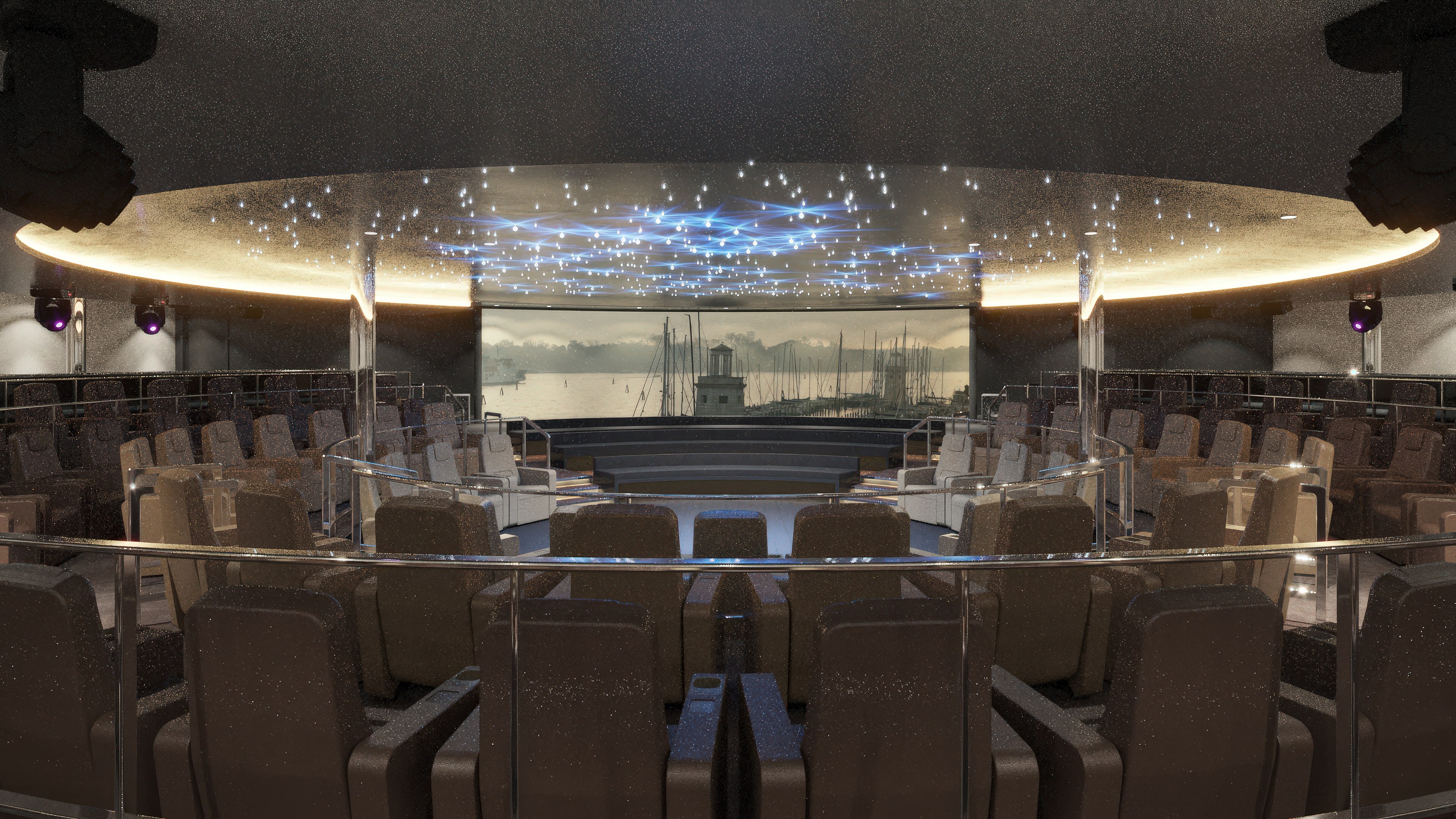
Theatre
Innovative In-The-Round Theatre
Seating for all 270 guests for bespoke shows, culinary masterclassesand Discovery Team presentations come to life.
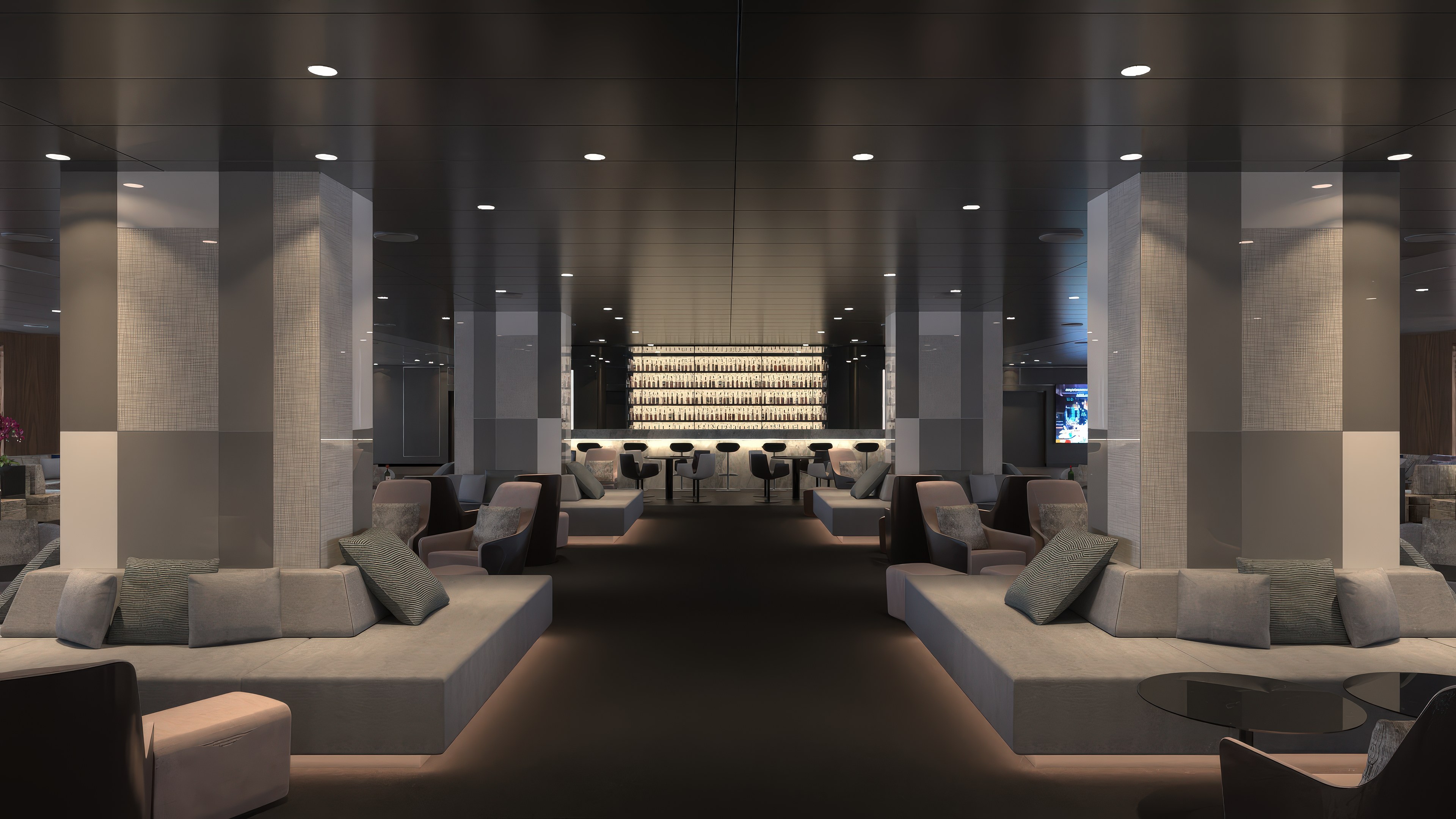
Main Lounge
The Main Lounge can be located on Deck 4

Unique Open Bridge
To meet the Captain and navigational team, gaining insights into Scenic Ikon’s cutting-edge design and technology. Whilst spending time with the Discovery Team as you search for wildlife and take in spectacular sights along your journey.

Scenic Lounge Bar
Interactive game shows, intimate performances by on board musicians and music from the in-house pianist.

Observation Lounge
Read a book, play board games or relax with a specialty tea or coffee. Spot wildlife through Swarovski telescopes.
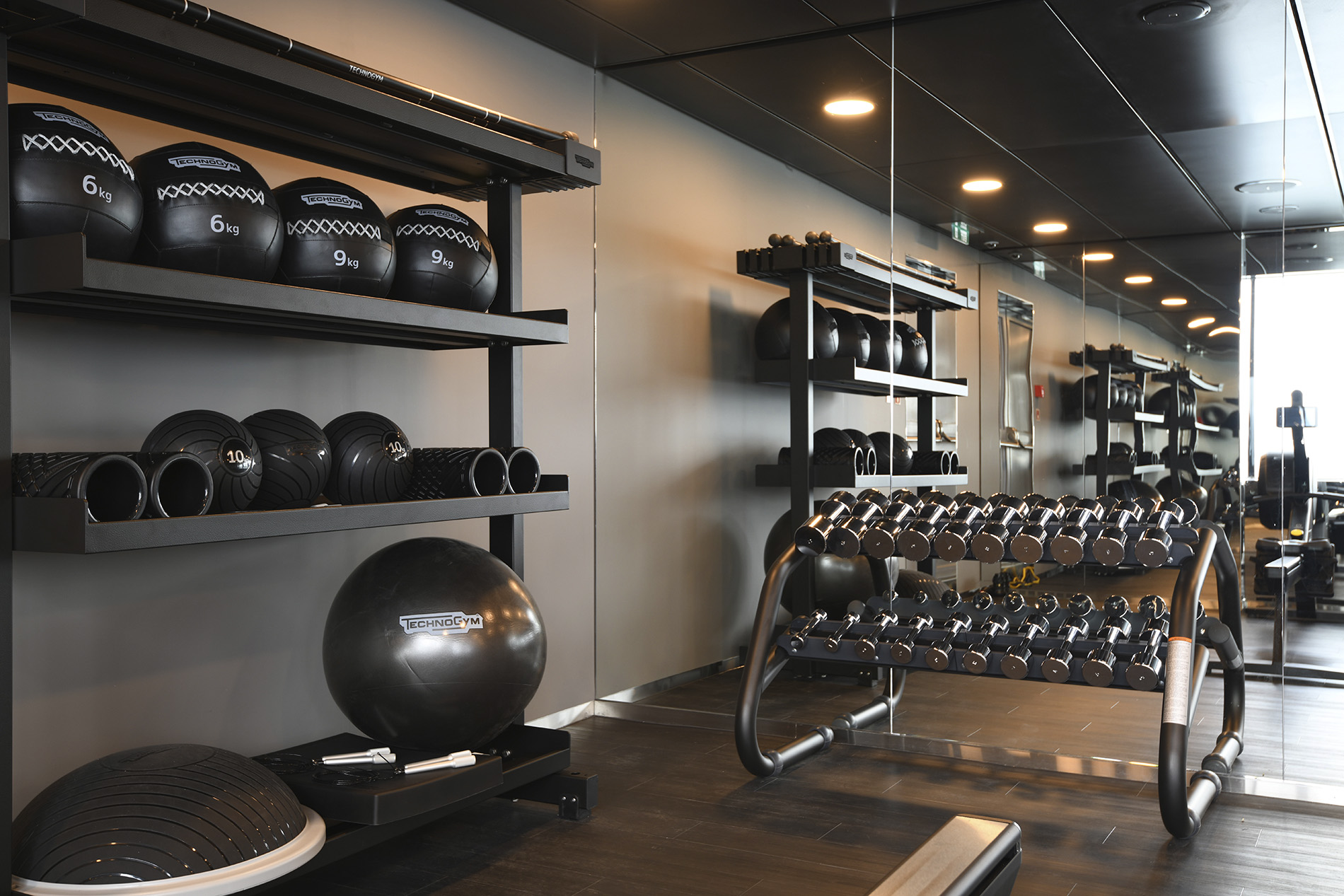
Senses Power Gym
Keep up your fitness during your voyage in the fully equipped, state-of-the-art gym. Raise your heart rate with a cardio or strength workout as you overlook spectacular ocean views. Train your way or opt for a personal training session with one of our qualified, onboard instructors#.

Pure Yoga & Pilates Studio
Our yoga and Pilates studio on Deck 7 is the only studio of its kind at sea. Rejuvenate your mind and body with a private session#. Or mix it up with one of our holistic therapy sessions, including aerial yoga, TRX, mindfulness meditation and Tibetan sound bowl classes.
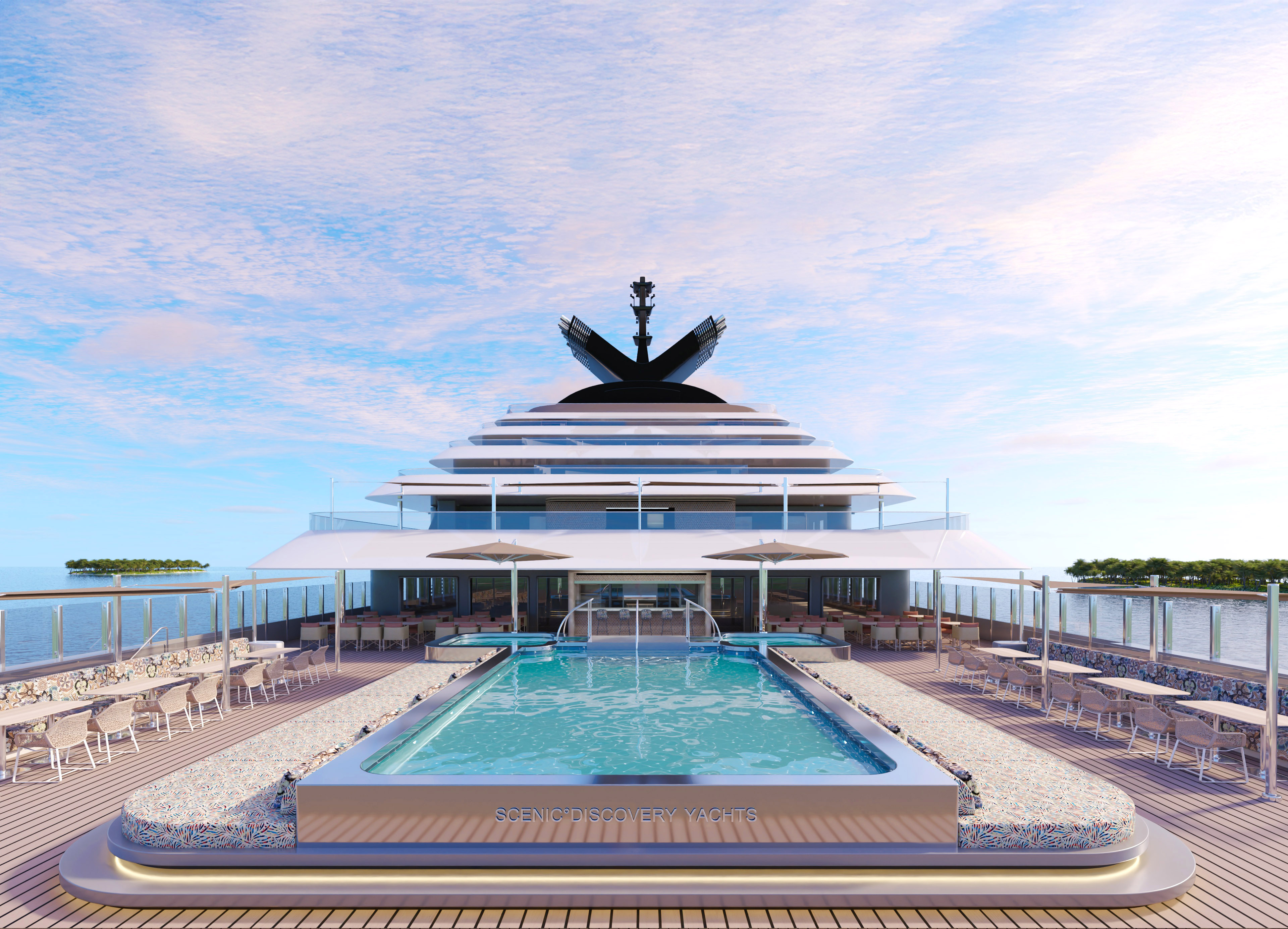
Pool and Terrace
Directly adjacent to Senses Spa. Relax in this tranquil pool admiring the spectacular landscapes, perhaps after a revitalising treatment or yoga class.
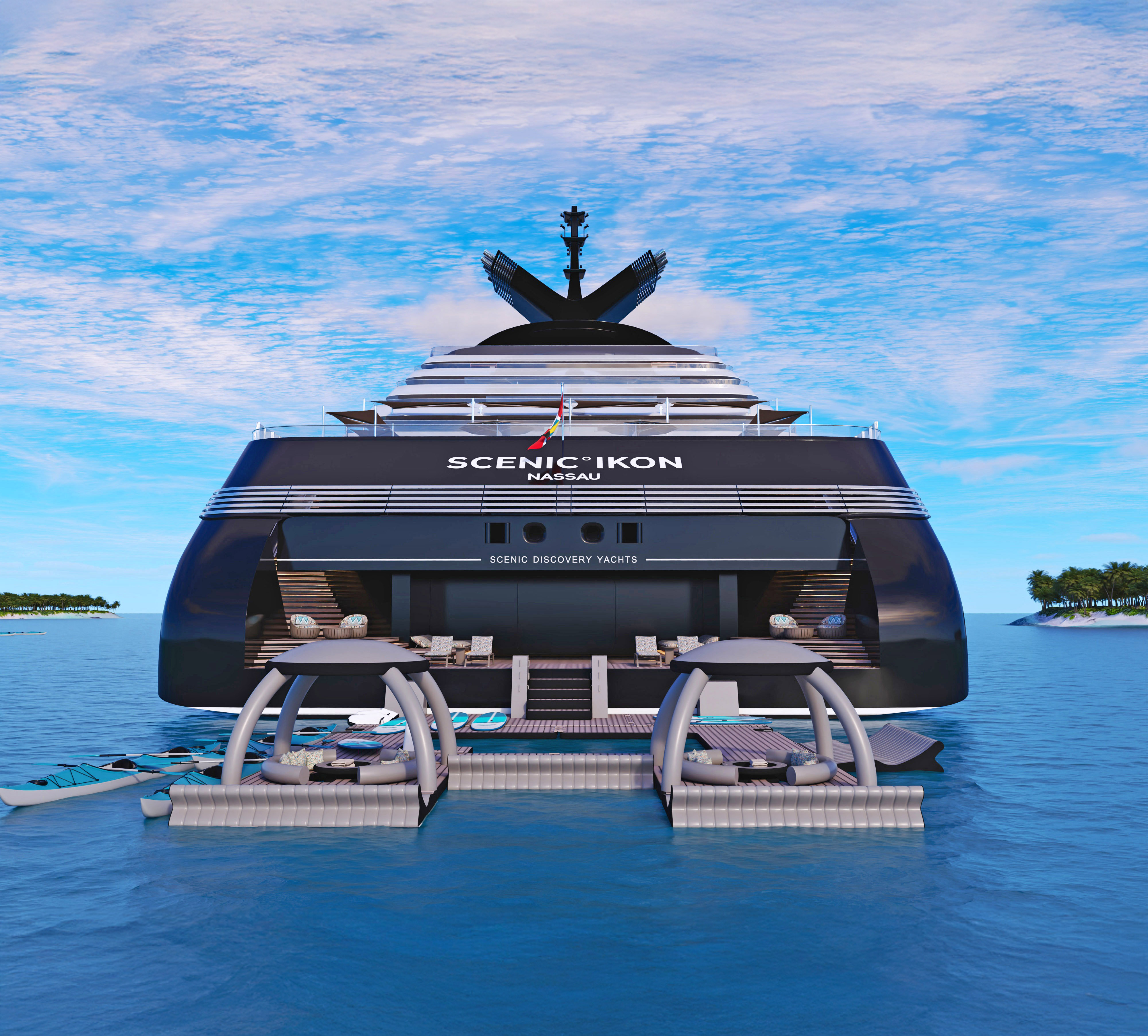
The Marina
A space to relax and exploring coastal wonders at your own pace with an array of water sports – paddleboard, dive with a Seabob, or take a refreshing ocean swim.
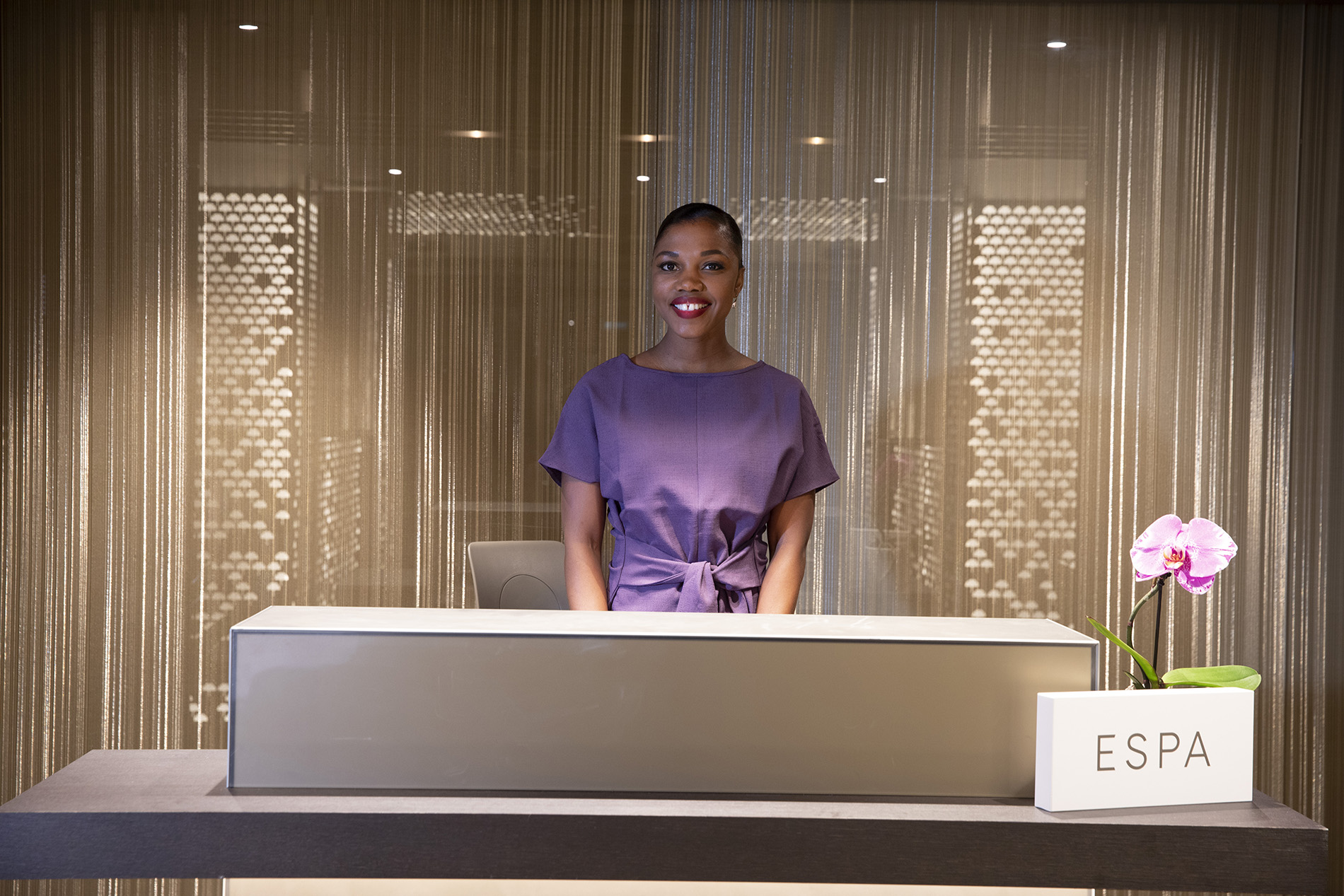
Senses Spa
Soak in the serenity with unsurpassed wellbeing experiences. Trained, specialist staff and state-of-the-art wellness facilities on board bring you a cruising experience like no other.
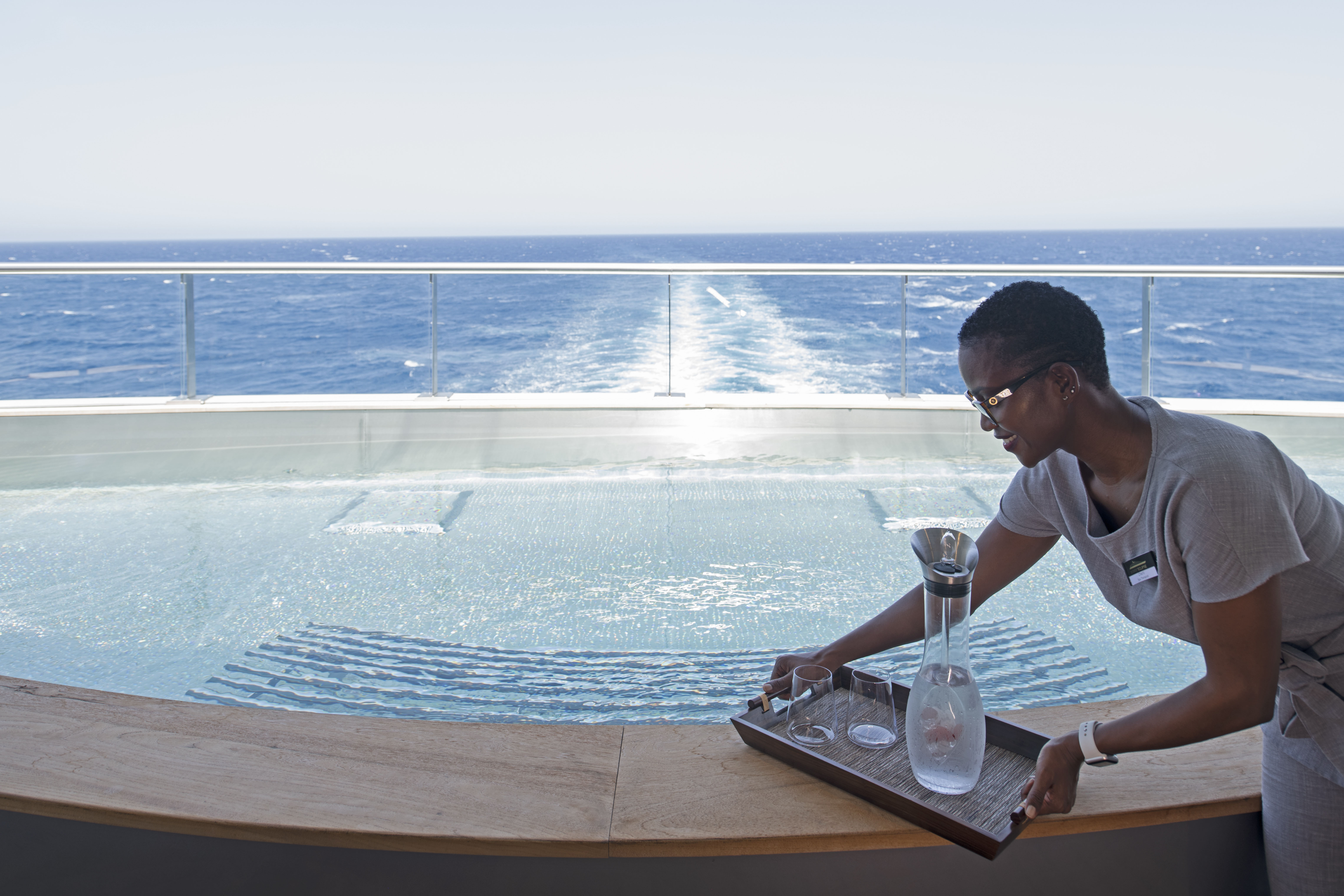
Senses Spa Pool Deck
Step into the rejuvenating Vitality Pool on Deck 6, directly adjacent to Senses Spa. Relax in this tranquil pool admiring the spectacular landscapes, perhaps after a revitalising treatment or yoga class.
WI-FI & Internet Access
Complimentary internet facilities are available and Wi-Fi is accessible throughout the ship for your personal electronic devices. We cannot guarantee the availability or quality of the internet connections as this may vary according to destination and weather. Please note service will be limited in Polar and remote regions. Some sites also may not be accessible due to Scenic firewall/company protection.
Smoking Policy
There is a designated outside smoking area on Deck 6 for guests. All suites, including suite verandah’s and terraces are non-smoking.
Special Dietary Requirements
Scenic accommodates special dietary requirements to the best of our ability across our river cruises, ocean voyages and land journeys where applicable. If you have special dietary requests, please notify us at the time of booking and inform your Cruise Director when you arrive.
Please note: while we do our best to accommodate all dietary requirements, special requests are not guaranteed and failure to meet any request is not a breach of contract on our behalf.
If your question has not been fully answered, please get in touch via our Contact Us page.
Dress Code
When you are relaxing on board, the dress code is smart casual and comfortable. Do not forget your swimsuits and exercise attire for the heated pools and plunge pools, the wellness areas and the gym, yoga and Pilates studio.
For evenings, while there are no formal nights, the recommended o board dress code is elegant casual for most restaurants. Suggested attire for women includes a dress, skirt or trousers with a sweater or blouse, and for men, trousers and a collared shirt. A tie and jacket are optional, but not required.
There are no specific pieces of clothing we insist you pack, however we can offer advice, based upon your itinerary. We recommend comfortable walking shoes for sightseeing, as well as any garments, such as hats, gloves and water-resistant jackets, which will help you to stay comfortable whatever the weather. The dress code across all Scenic cruise and tour itineraries is casual and comfortable. Dinner attire is smart casual – open-neck shirts, trousers and dresses; you may if you wish wear a jacket or blazer with a tie but it is not required.
Children
Luxury expedition-style cruising is not recommended for children under 12. Guests under the age of 18 years must be accompanied by an adult and must share their accommodation with an adult. No children’s programs or babysitting services are available on board.
Visitor Policy
In selected ports on request, visitors may be allowed on board. Visitation is not permitted on embarkation and disembarkation day. A visitor form is to be completed prior to the cruise. The guests will be informed once approved. Visitors will receive a visitor pass at ship’s gangway after they provide photo identification. Visitors will need to be accompanied at all times.
Our Commitment to a Sustainable Future
At Scenic, we are committed to ensuring the pristine destinations and communities we visit retain their wonder. We’ve invested in state-of-the-art technology and sustainable initiatives to leave as small a footprint as possible.
- State-of-the-art technology: The GPS Dynamic Positioning system allows the ship to maintain location without dropping anchor onto the sensitive seabed. Our highly efficient engines reduce noise and vibrations for minimal disturbance to the wildlife.
- Biosecurity: We adhere to IAATO and AECO protocols, ensuring that both our crew and guests maintain a safe distance from wildlife and strictly follow biosecurity guidelines.
- Efficient fuel and engines: Advanced emissions technology and IMO low sulphur fuel.
- Wastewater treatment: Advanced treatment systems to ensure minimal impact on local ecosystems.
- Plastics Reduction: We are committed to reducing our environmental footprint, with our ships already over 95% single-use guest plastic-free.
- Local sourcing and on board herb garden: We source from local markets wherever possible, and maintain an on board self-sufficient herb garden, significantly reducing waste and transportation-related emissions.
- Conservation education: Educational program that fosters a deeper understanding of the environments we visit.
Language
The official language spoken on board is English. All officers, staff and crew as well as local guides and regional specialists speak fluent English. All announcements and lectures will be presented in English.

Deck 10
- Smoking Area
- Elevator
- Cabanas
- Sky Cocktail Bar
- Sky Deck & Pool

Deck 9
- Chairmans Club
- Elevator
- Ikon Penthouse
- Scenic Yacht Suite
- Horizon Suite
- Signature Spa Suite
- Deluxe Verandah Suite

Deck 8
- Experience Pool
- Senses Rejuvenation Spa
- Strength & Endurance Gym
- Elevator
- Grand Terrace Suite
- Master One Bedroom Suite
- Grand Deluxe Verandah Suite
- Deluxe Verandah Suite

Deck 7
- Spa Vitality Pool
- Senses Rejuvenation Spa
- Yoga & Pilates
- Elevator
- Balance & Flexibility Gym
- Wheelhouse
- Master One Bedroom Suite
- Grand Deluxe Verandah Suite
- Deluxe Verandah Suite

Deck 6
- Azure Dining Terrace
- Crustory
- Azure Bar & Cafe
- Lumiere Dining
- Alkemia
- Elevator
- Observation Lounge
- Helideck
- Observation Deck
- Deluxe Verandah Suite
- Grand Deluxe Verandah Suite
- Master One Bedroom Suite

Deck 5
- Pool & Pool Terrace
- Yacht Club Bar
- Yacht Club
- Elevator
- Master One Bedroom Suite
- Grand Deluxe Verandah Suite
- Deluxe Verandah Suite

Deck 4
- Summa Dining
- Textura Dining
- Night Market @ Koko’s
- Elements Dining
- Koko’s
- Chef’s Table
- Sushi Bar @ Koko’s
- Elevator
- Guest Service
- Reception
- Main Lounge
- Scenic Bar
- Boutique
- Theatre

Deck 3
- Marina
- Marina Lounge
- Elevator
- Discovery Centre

